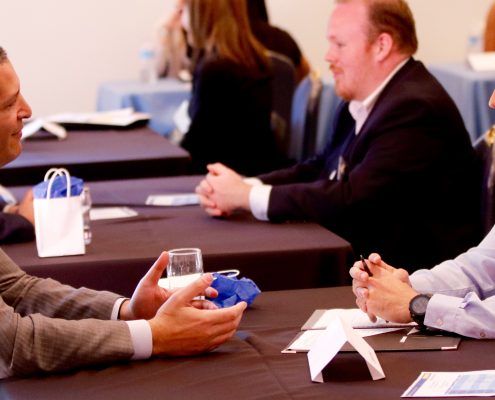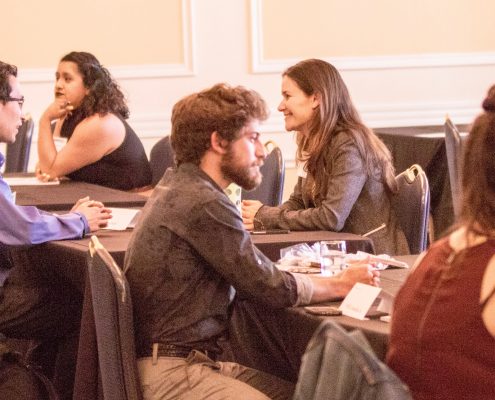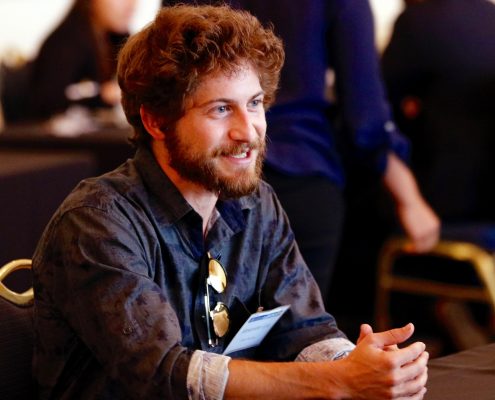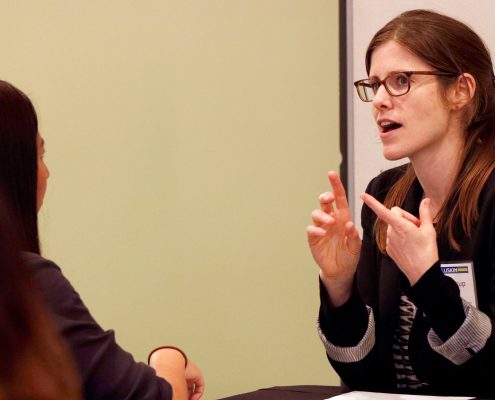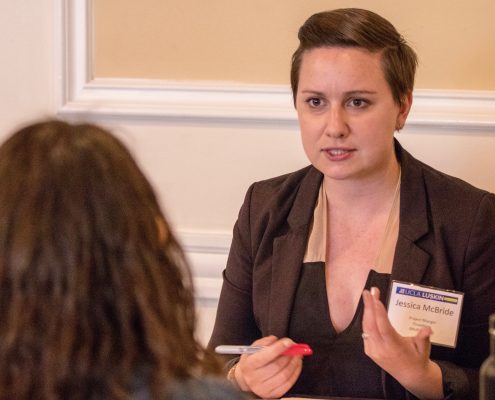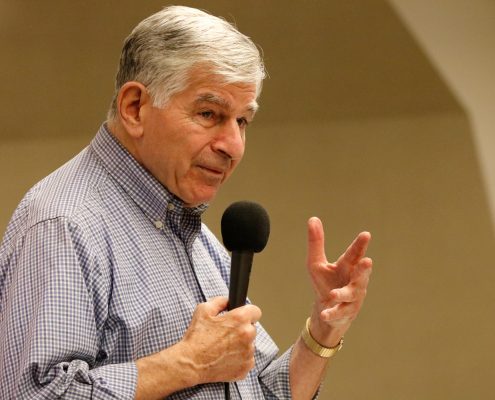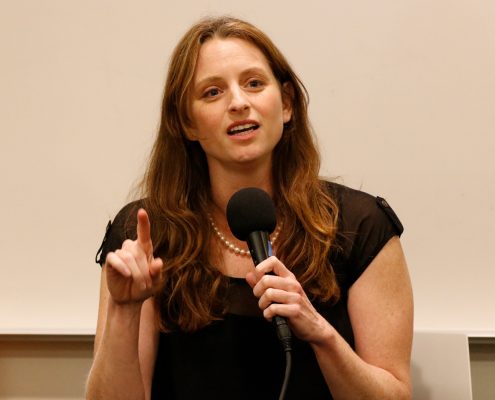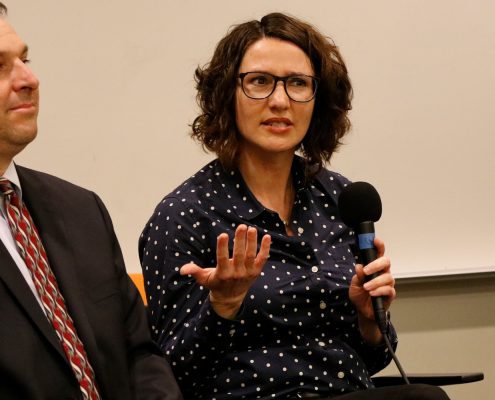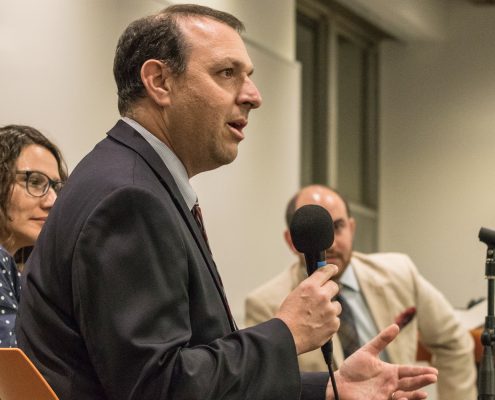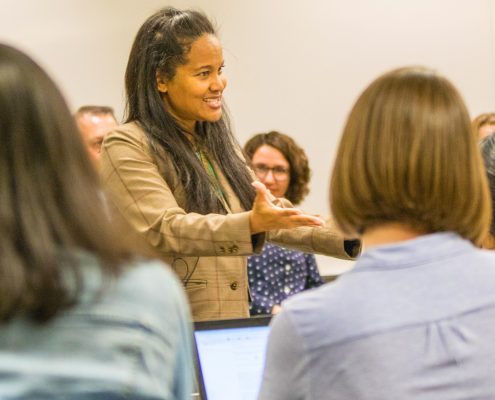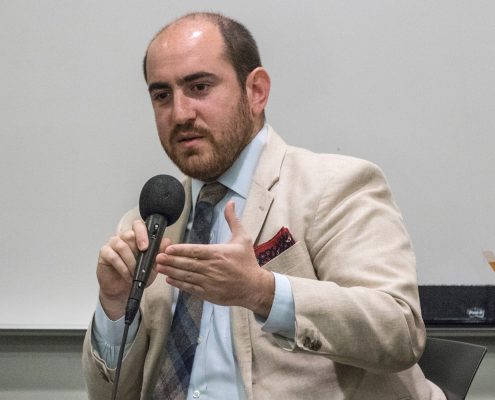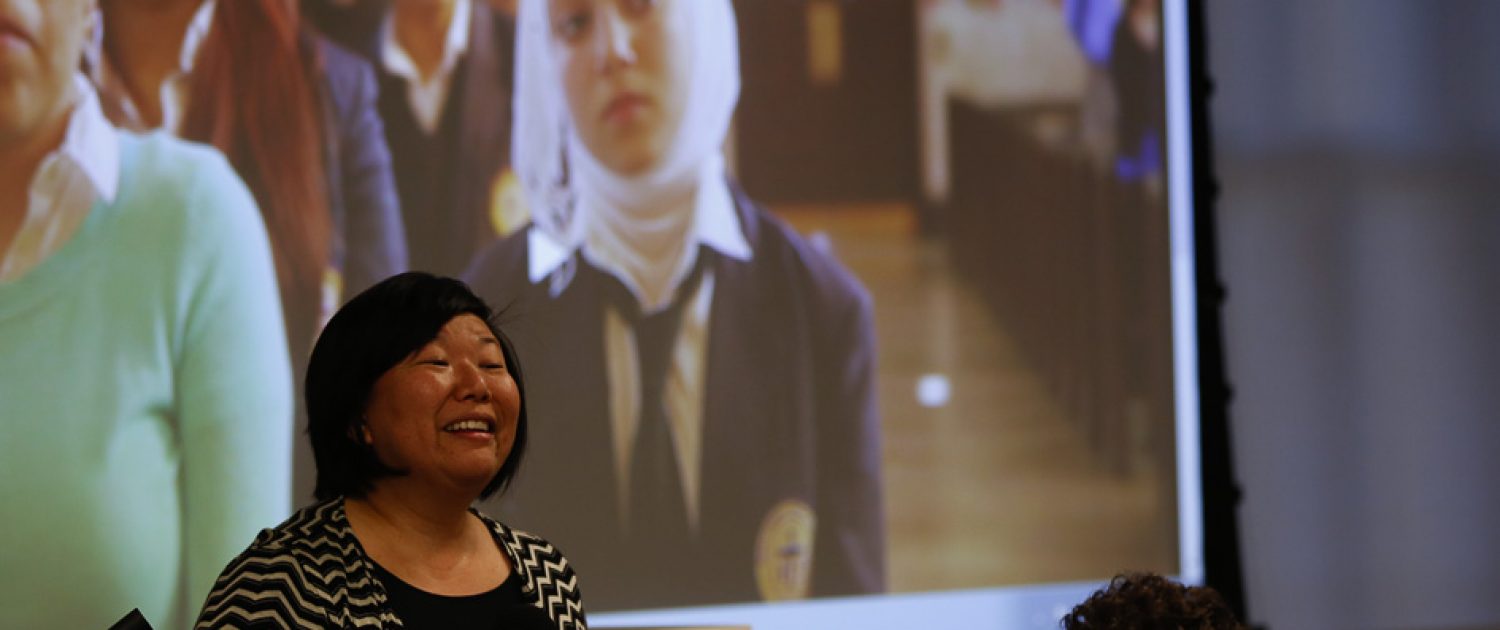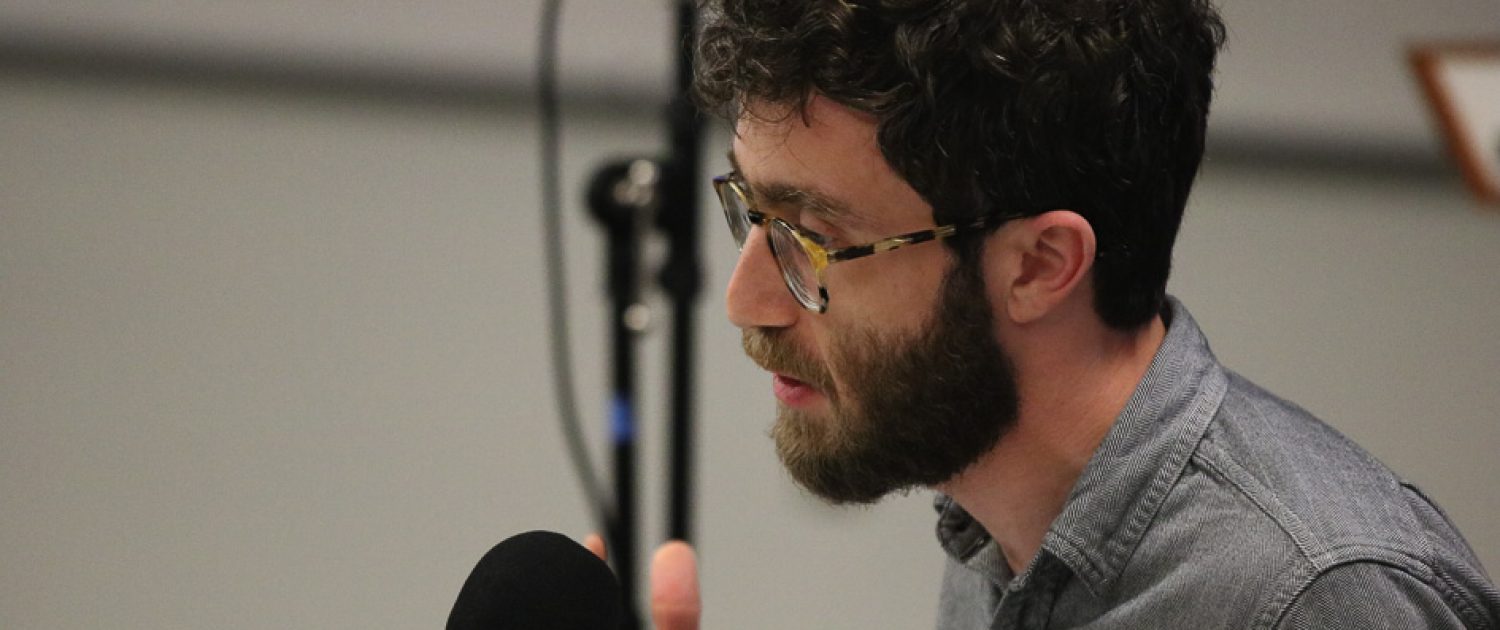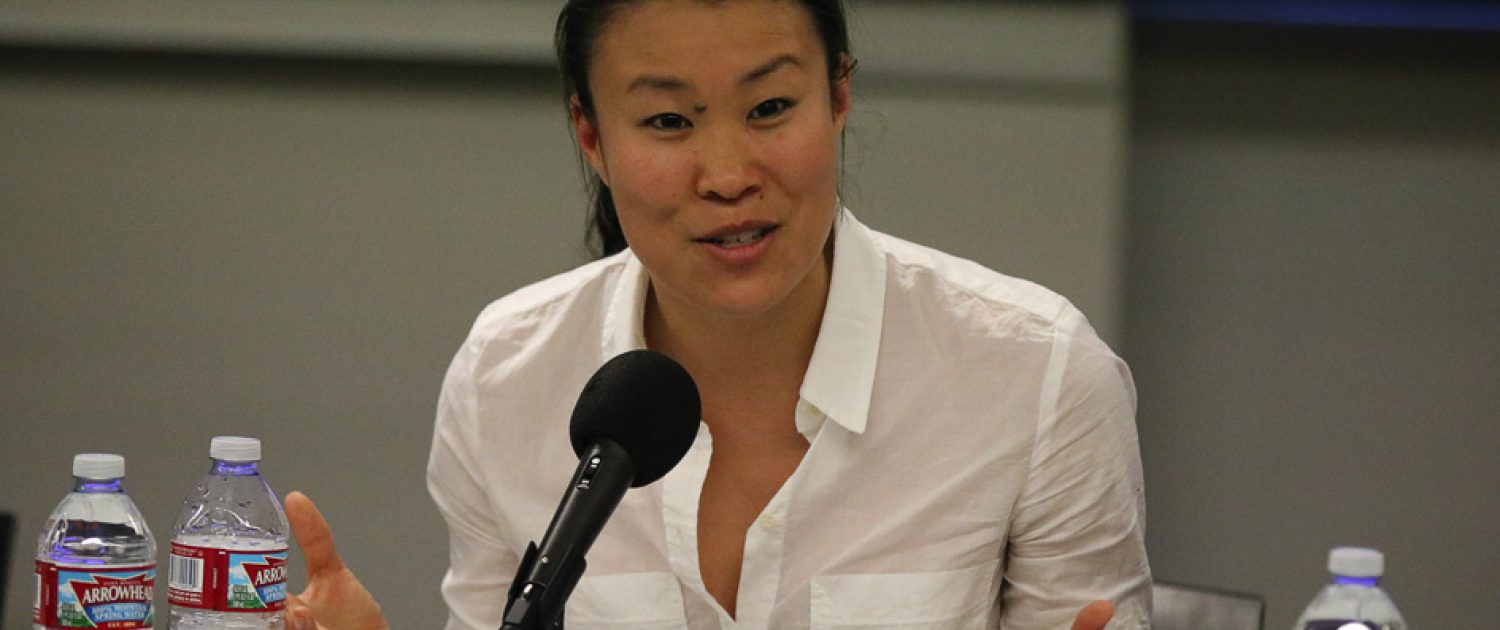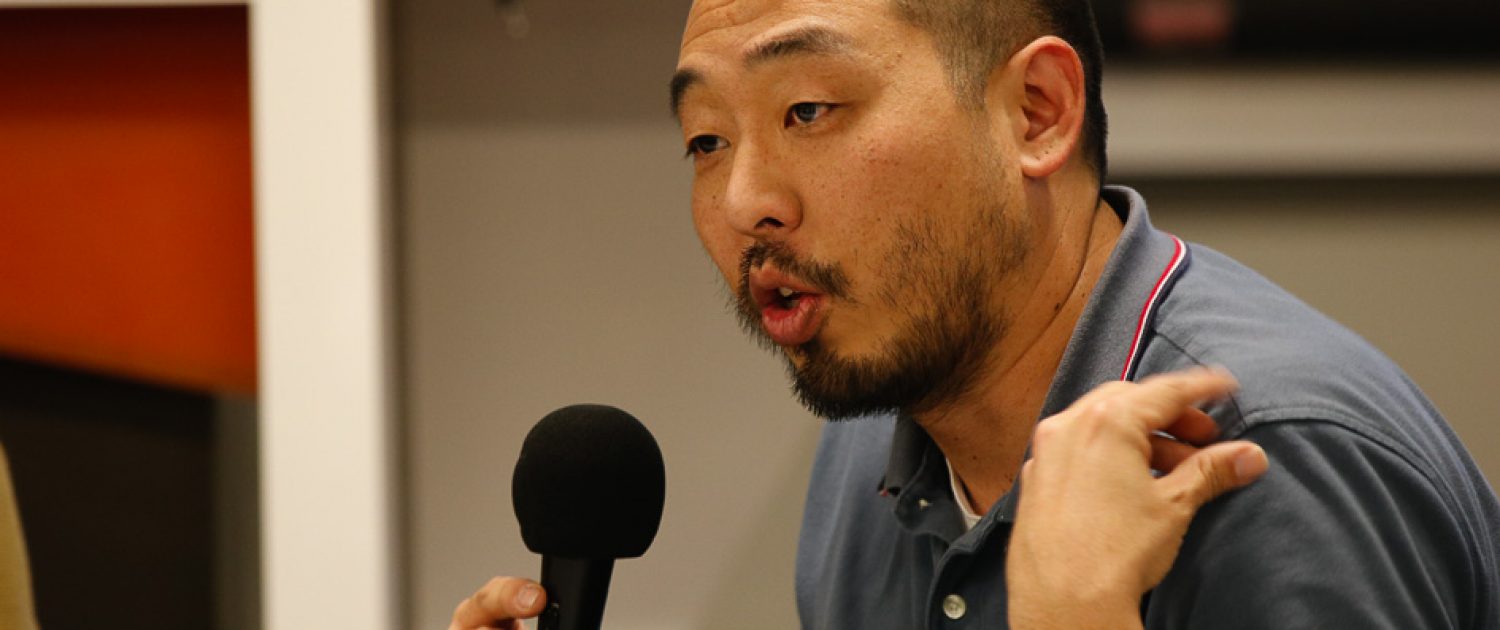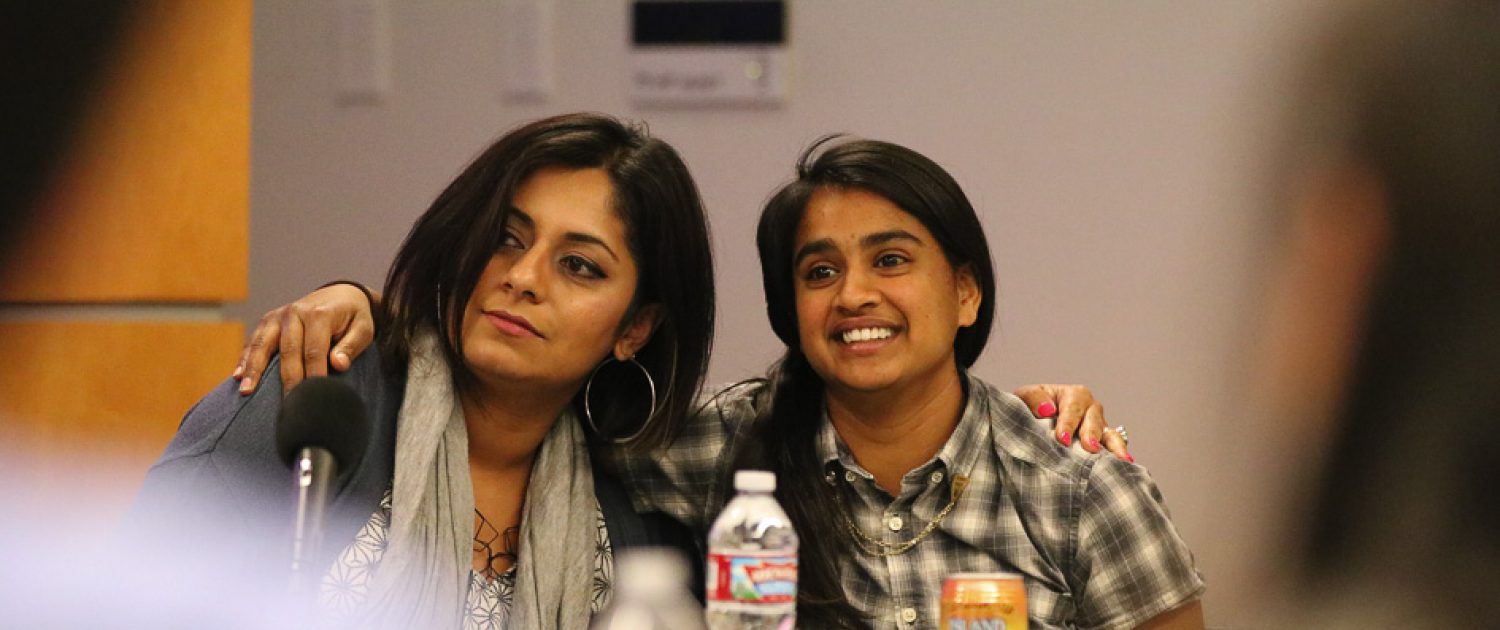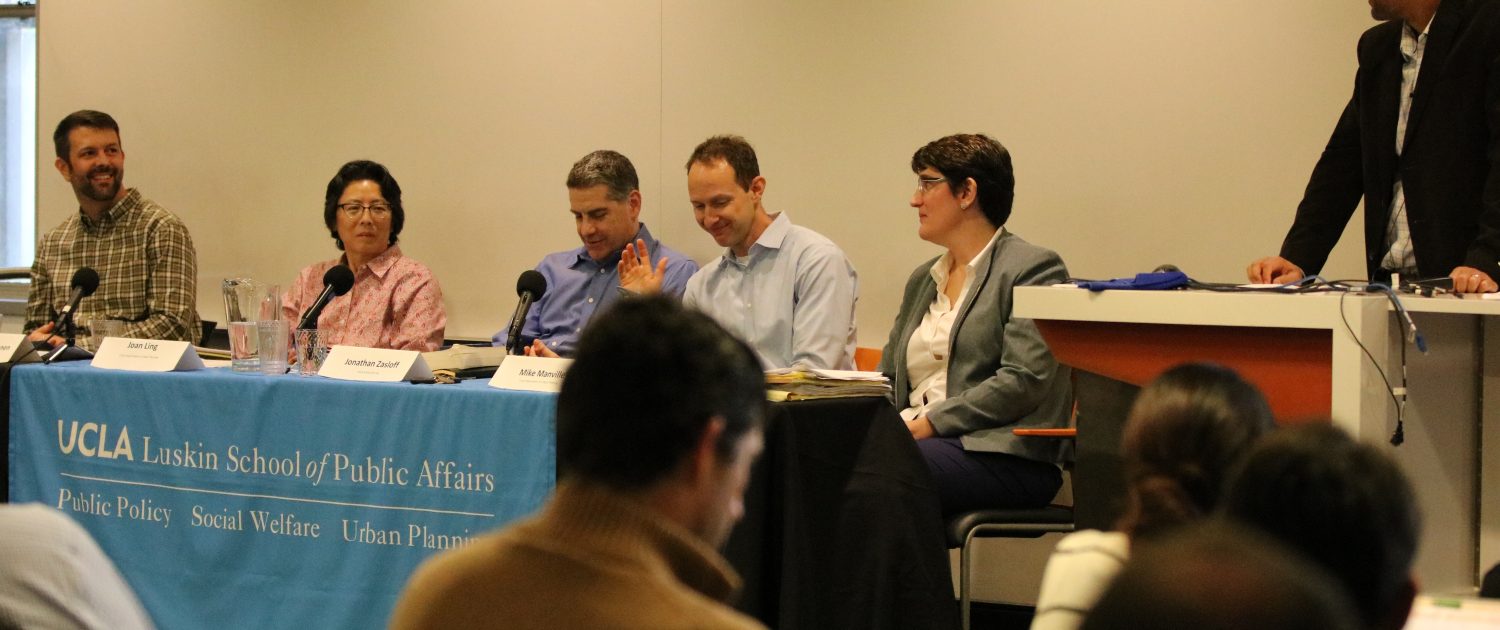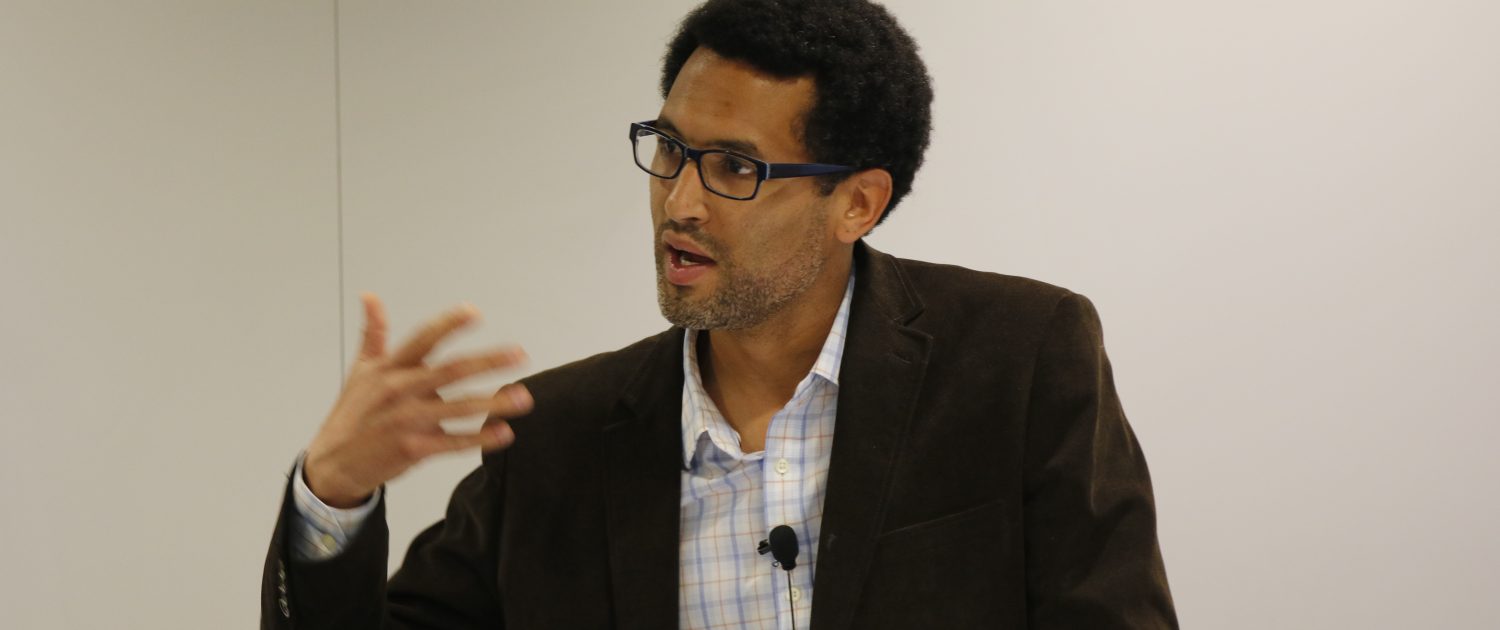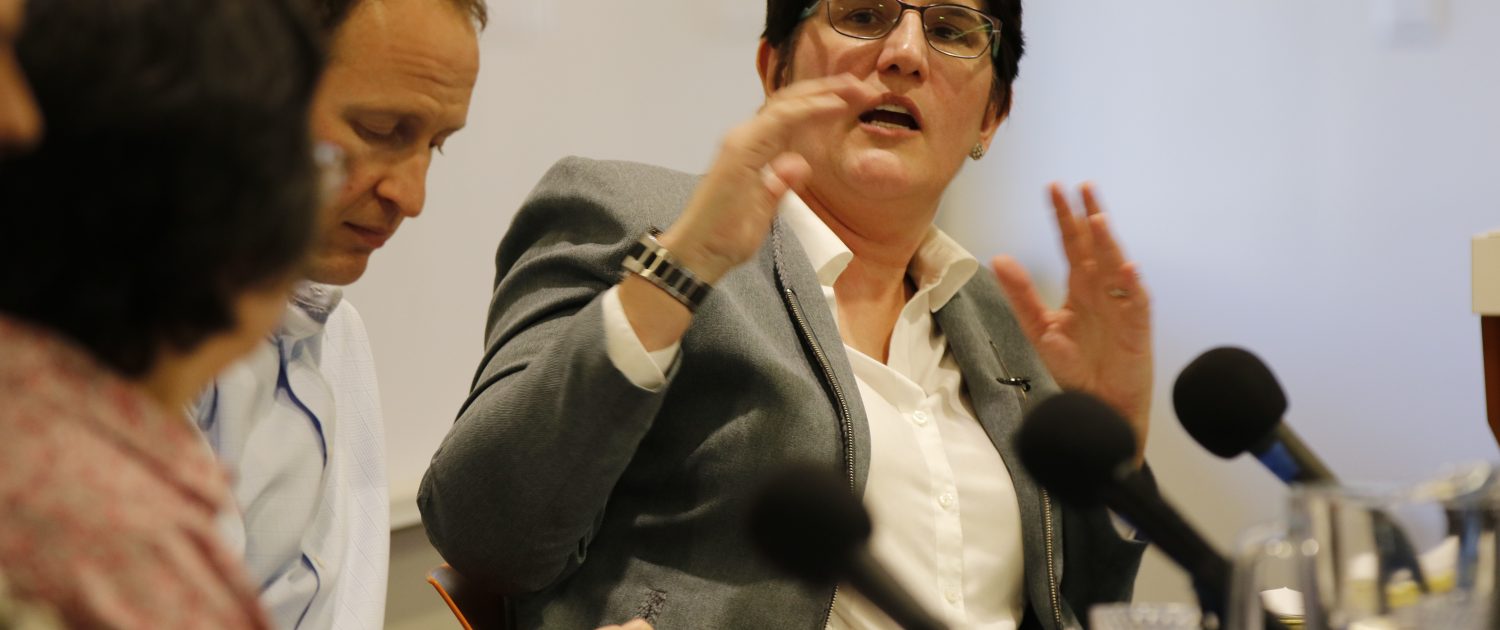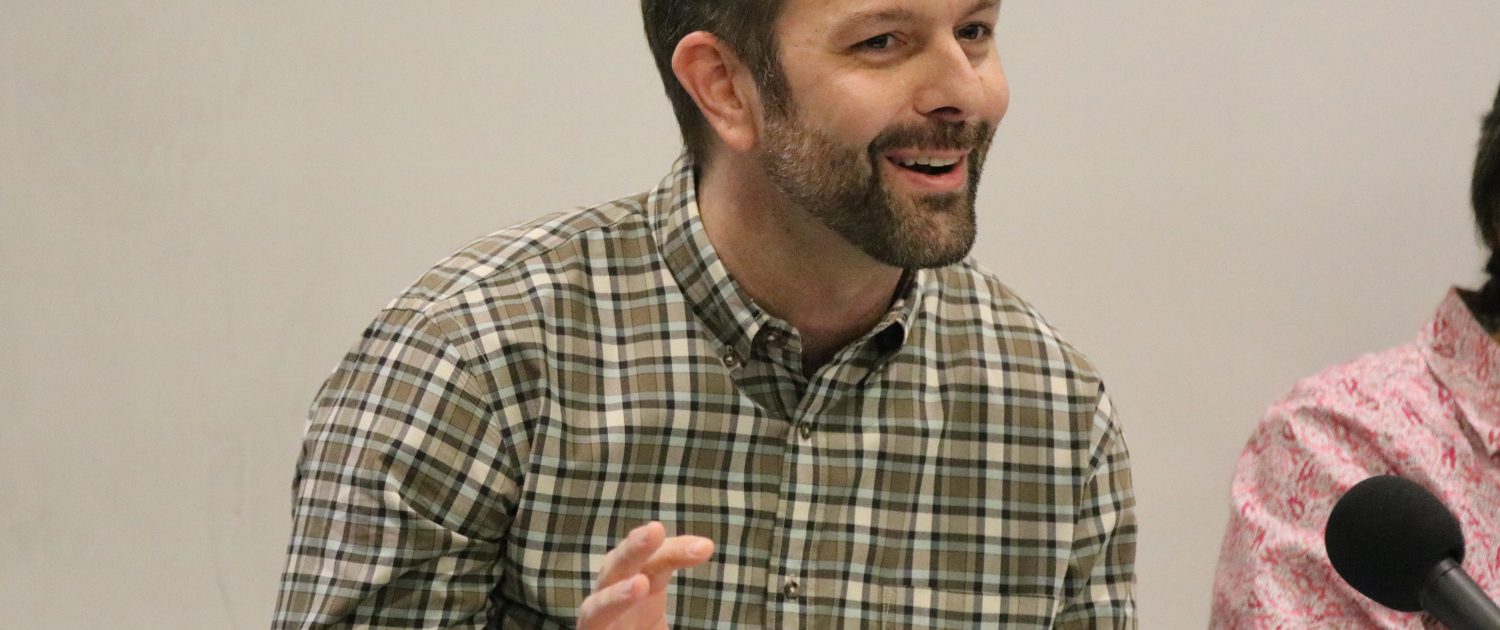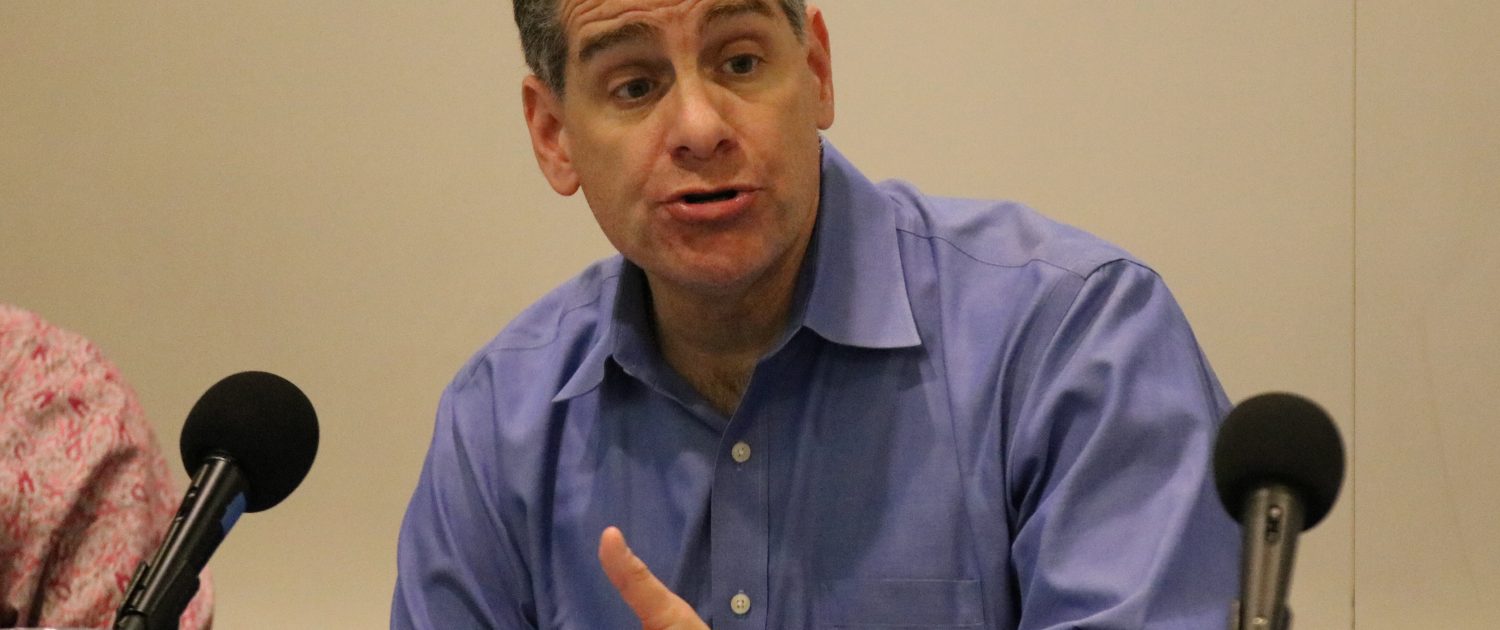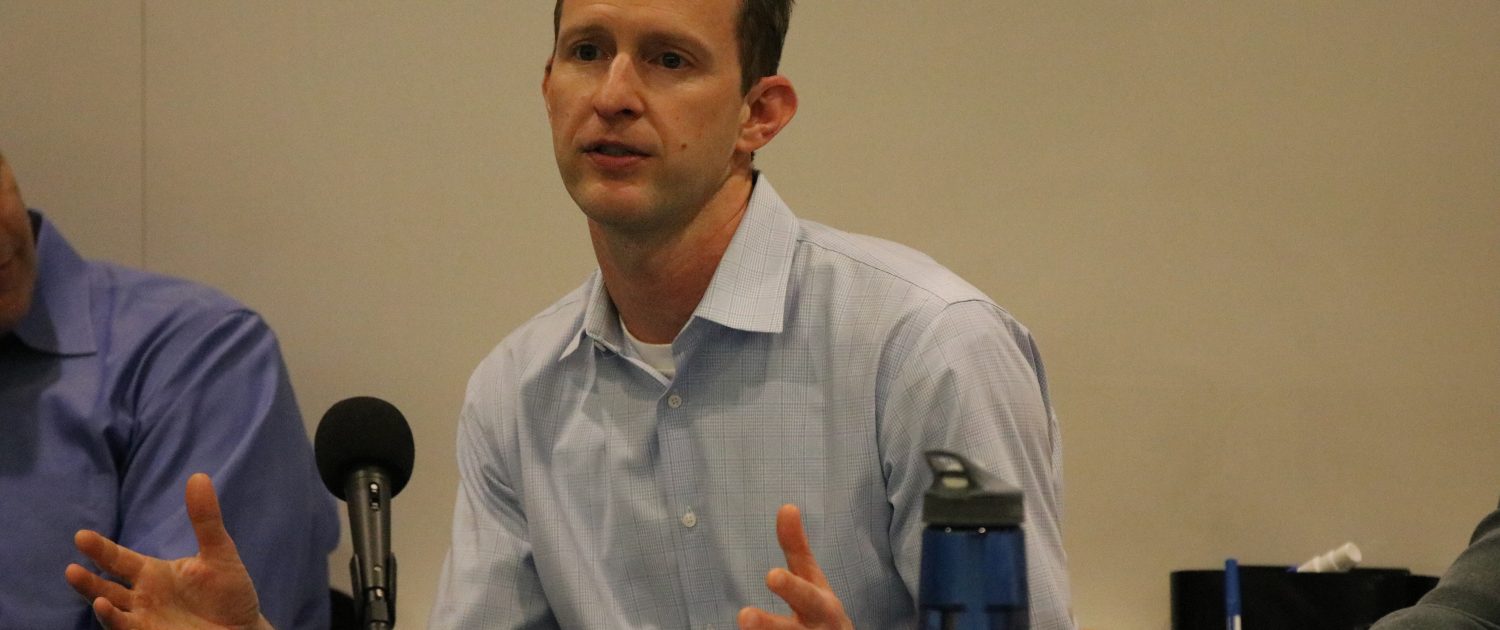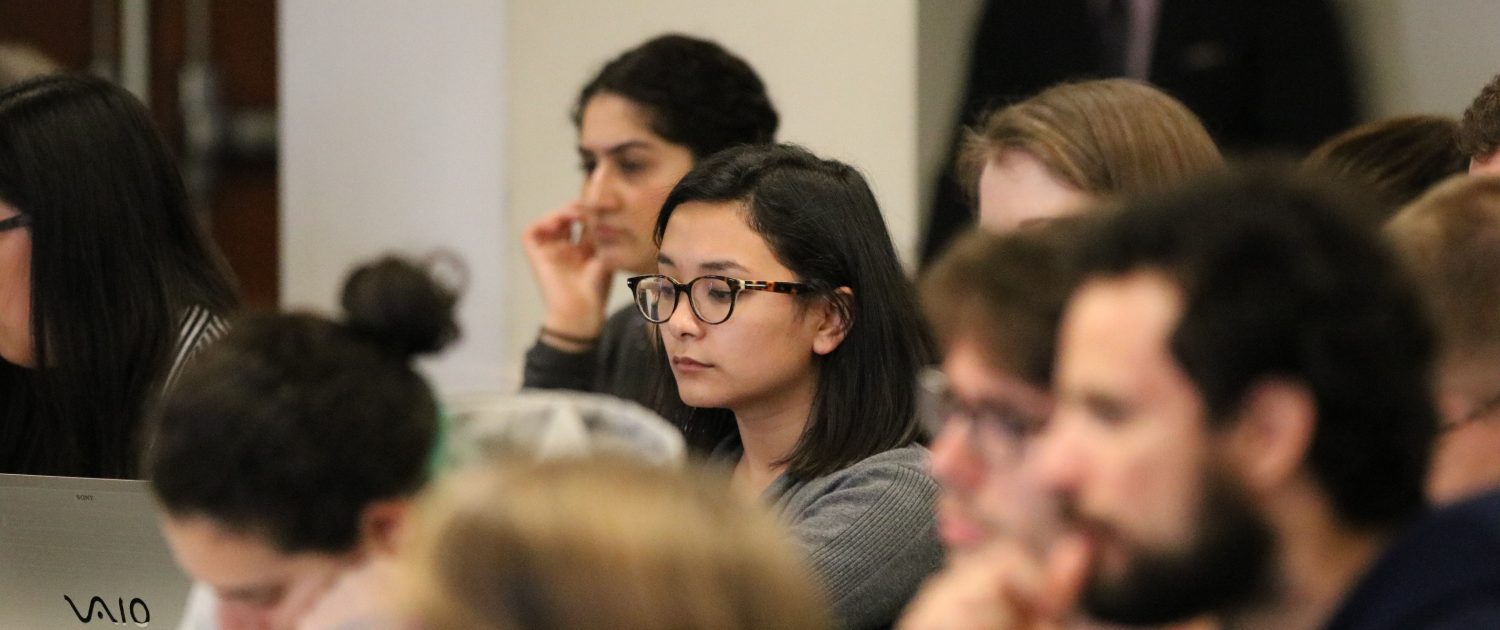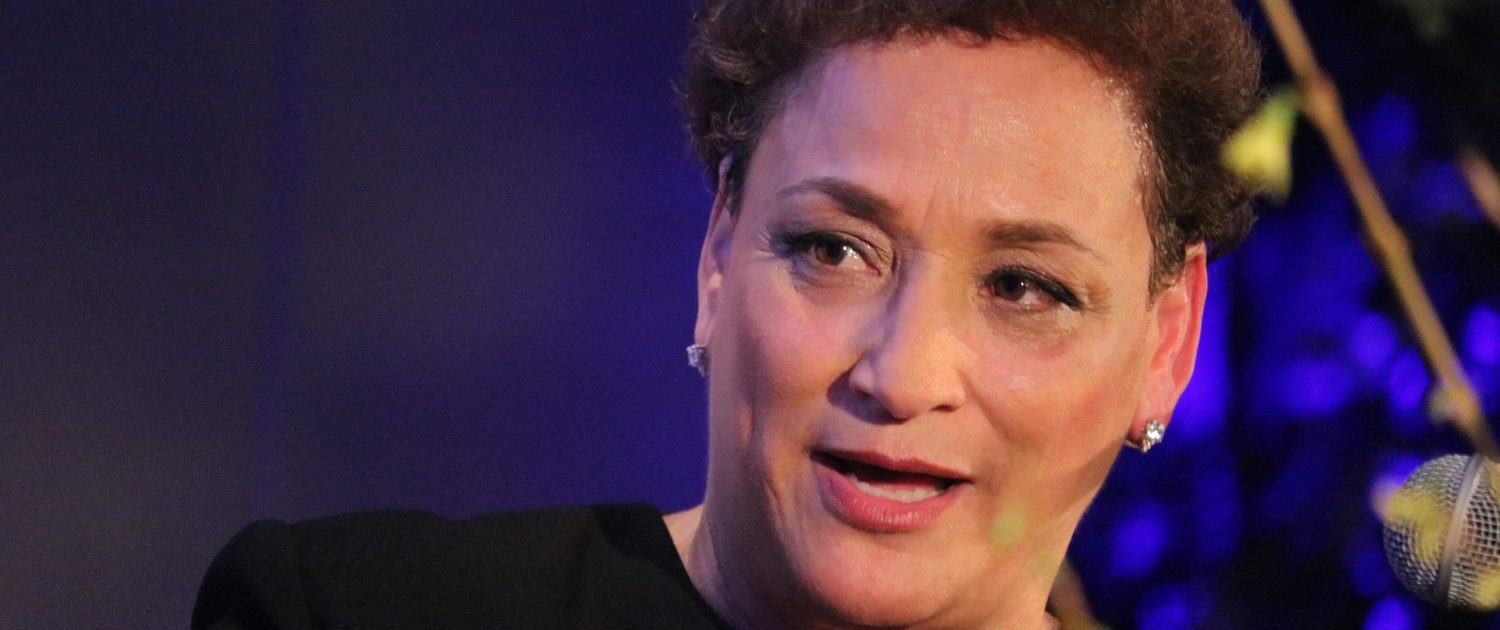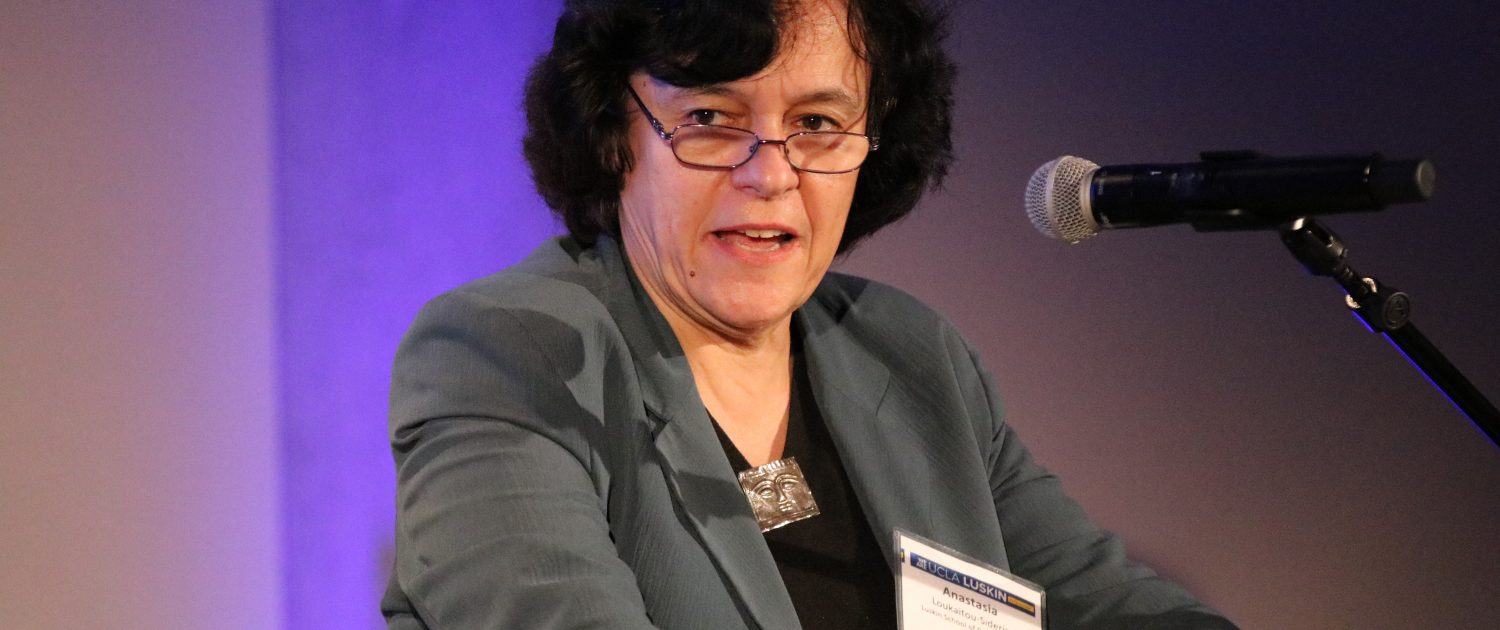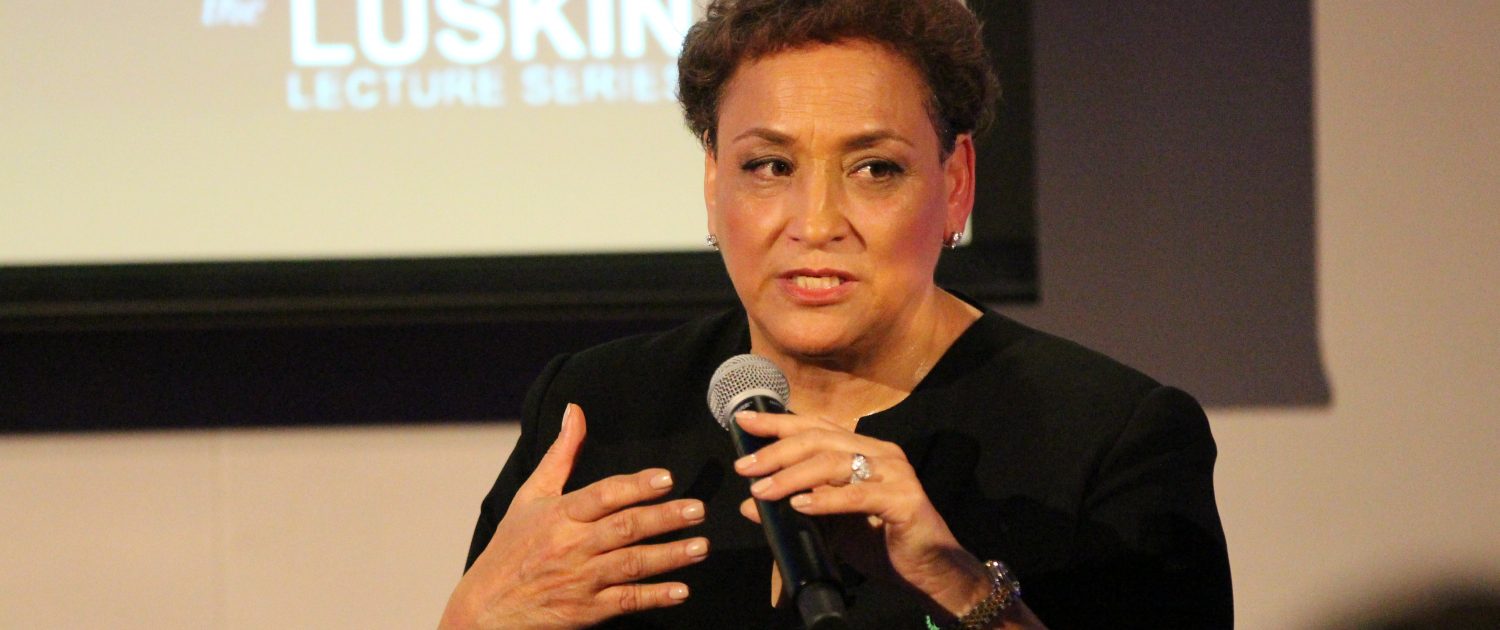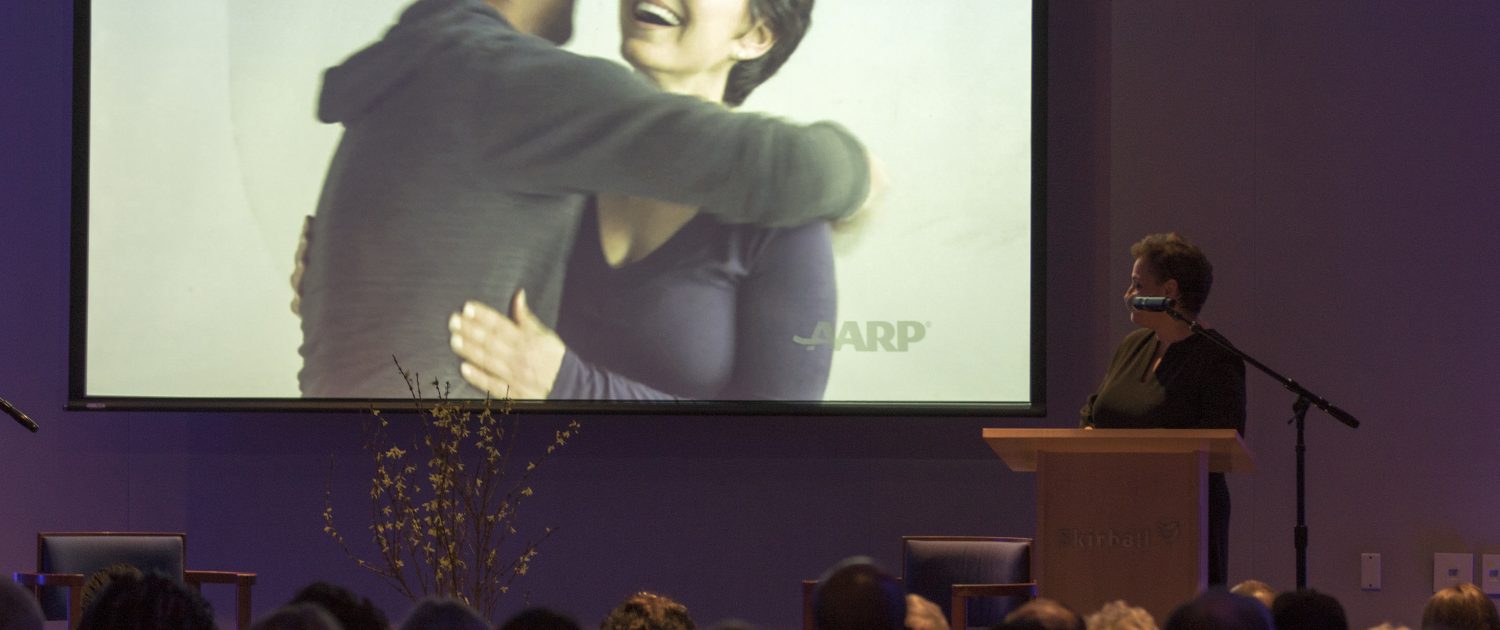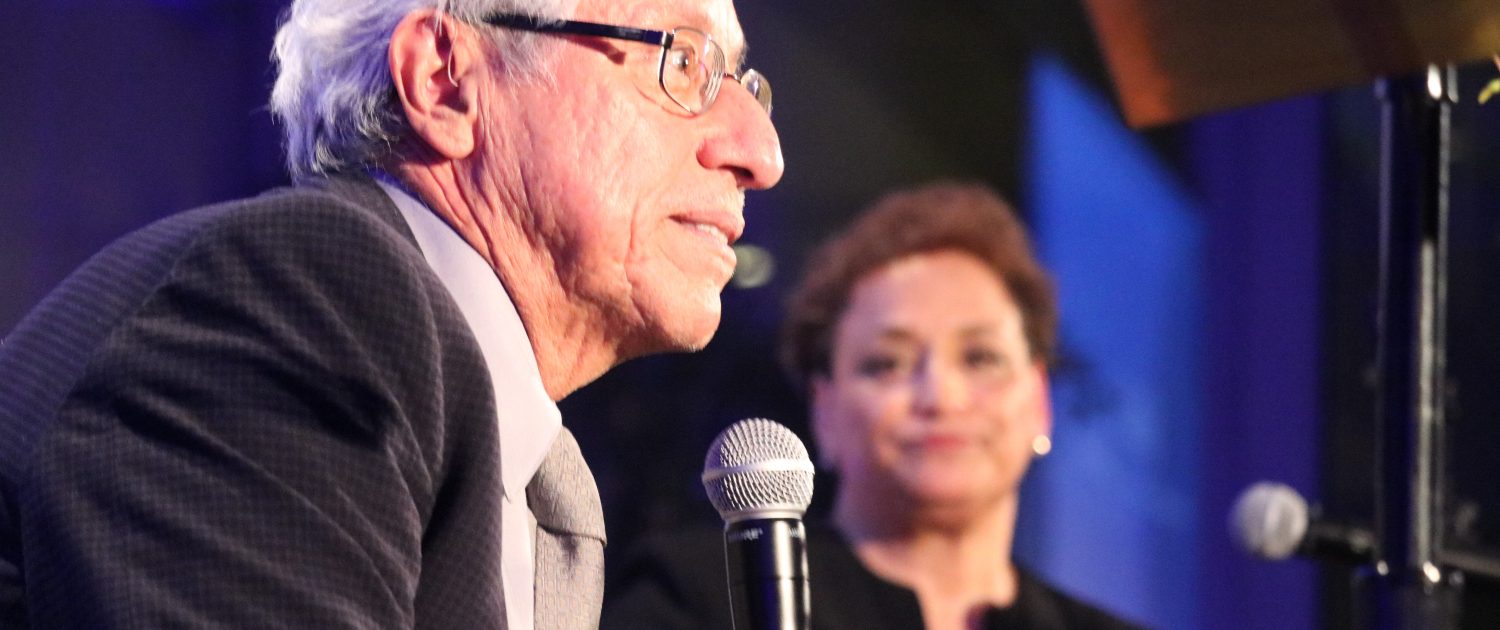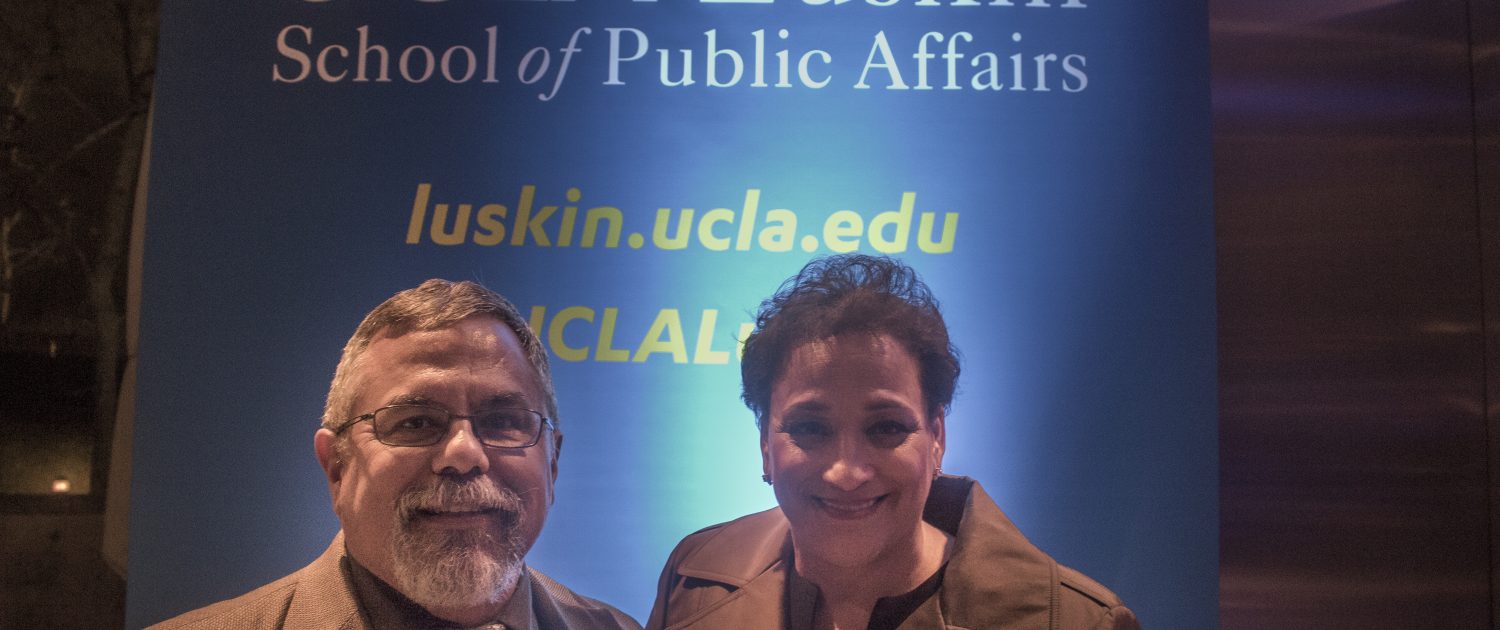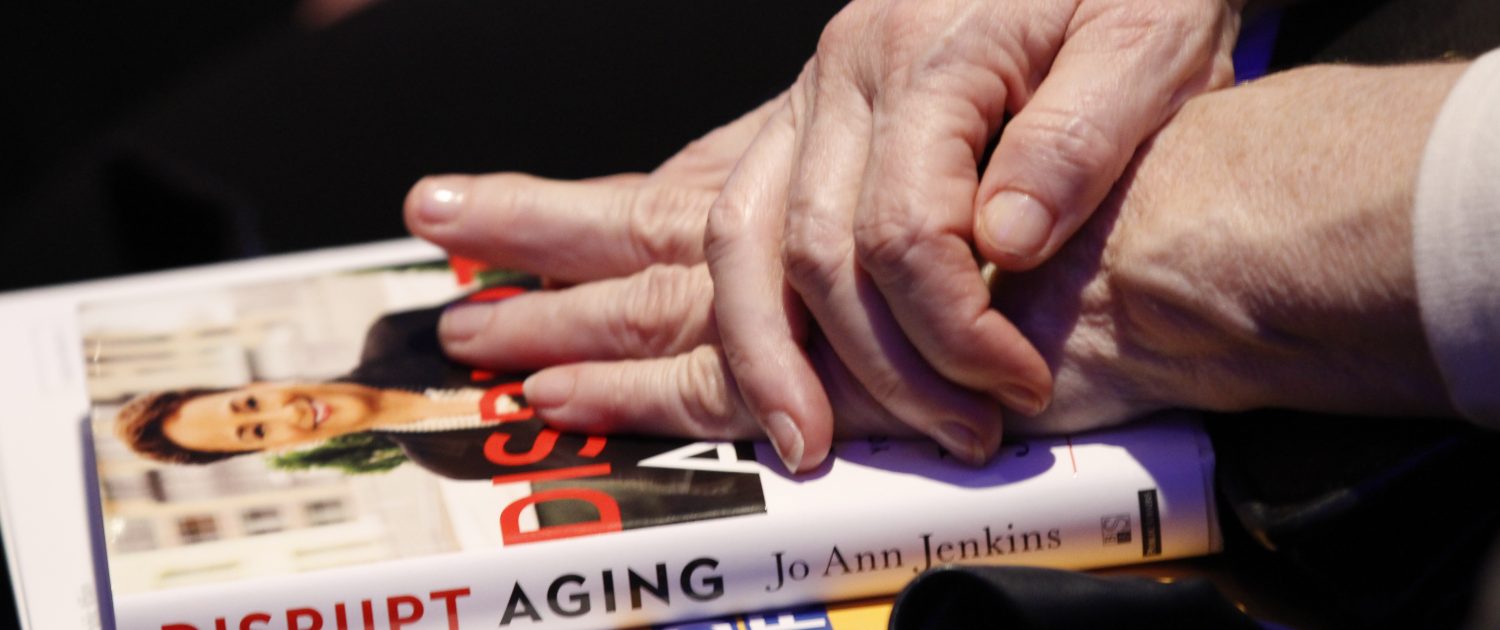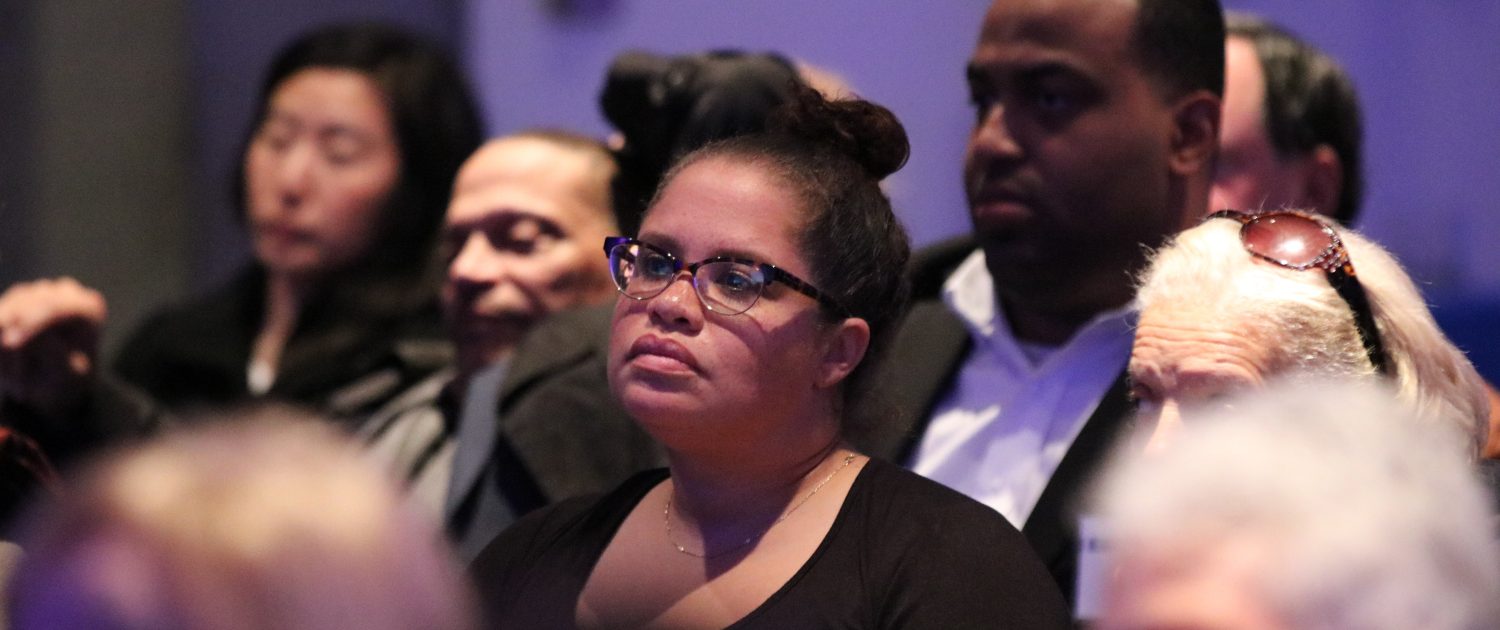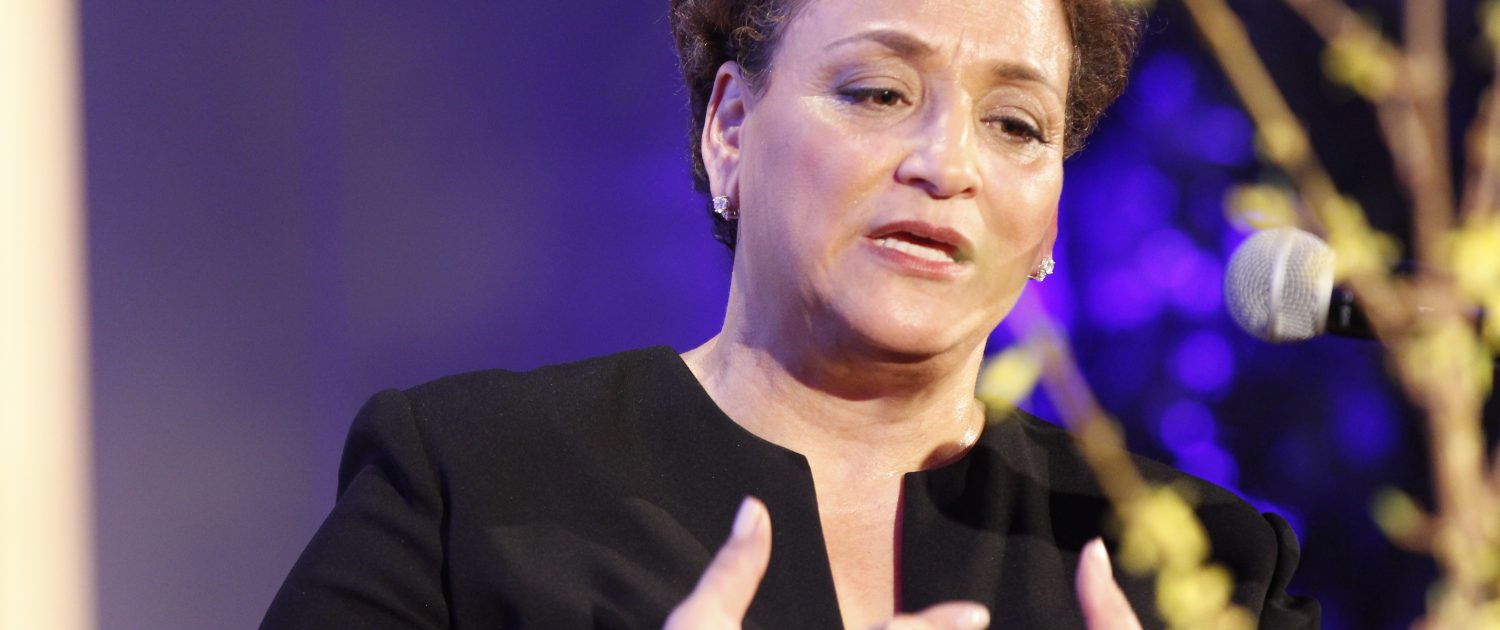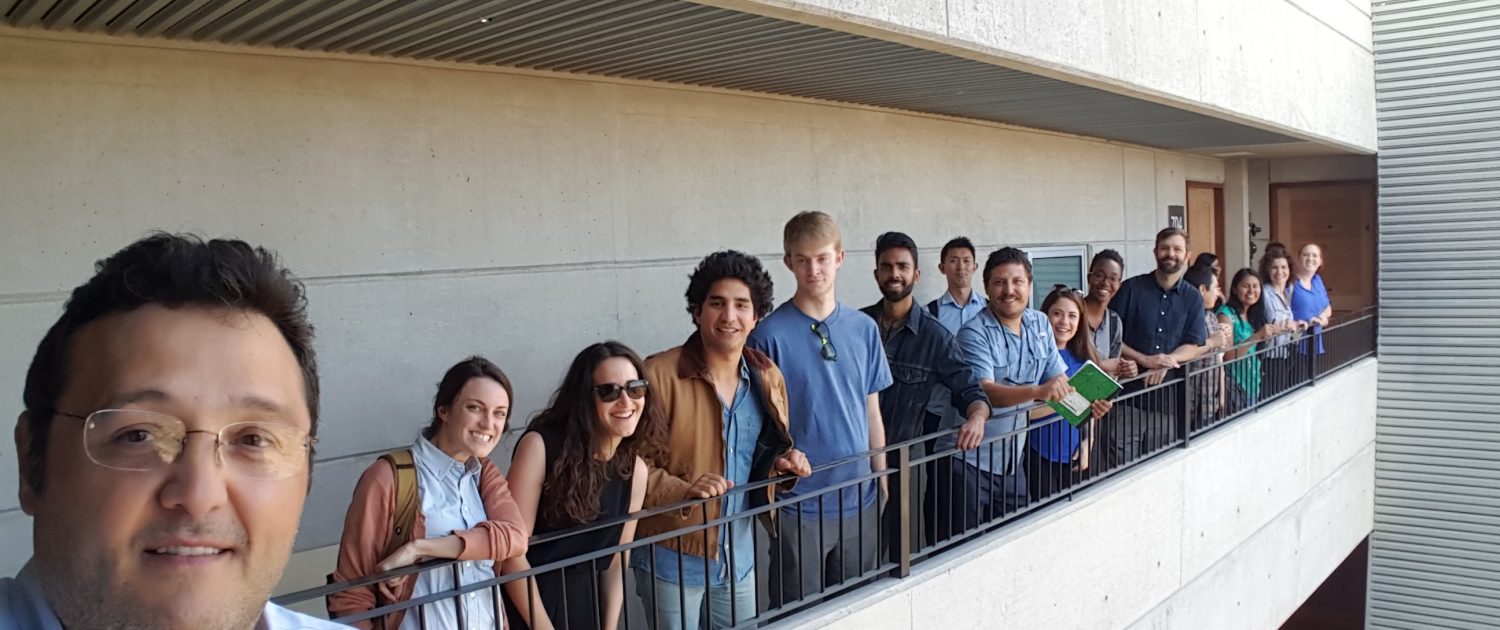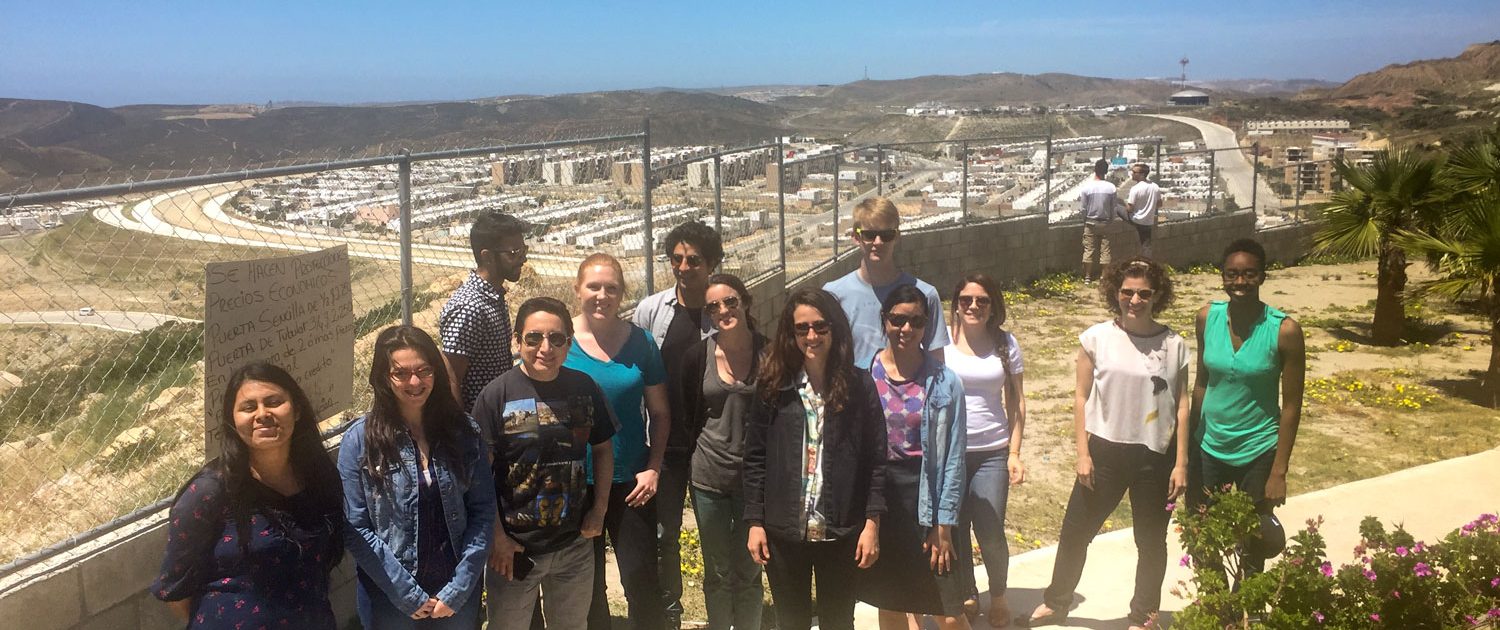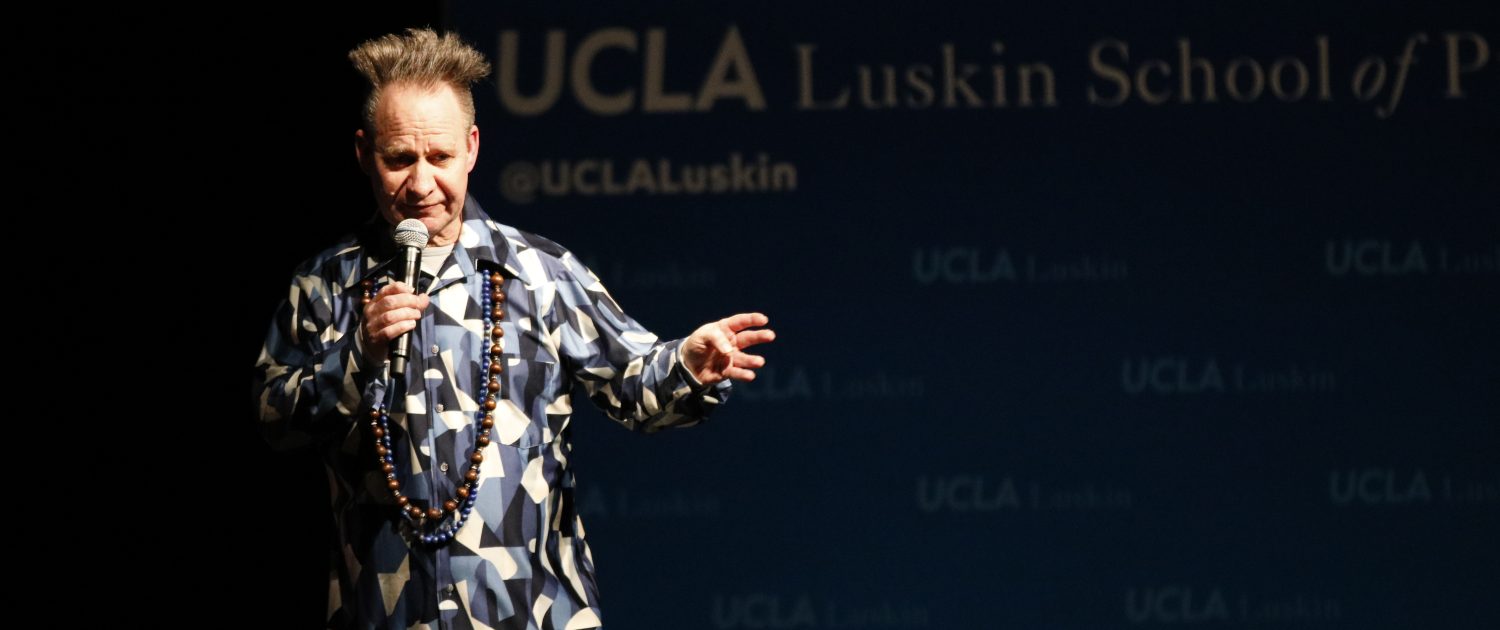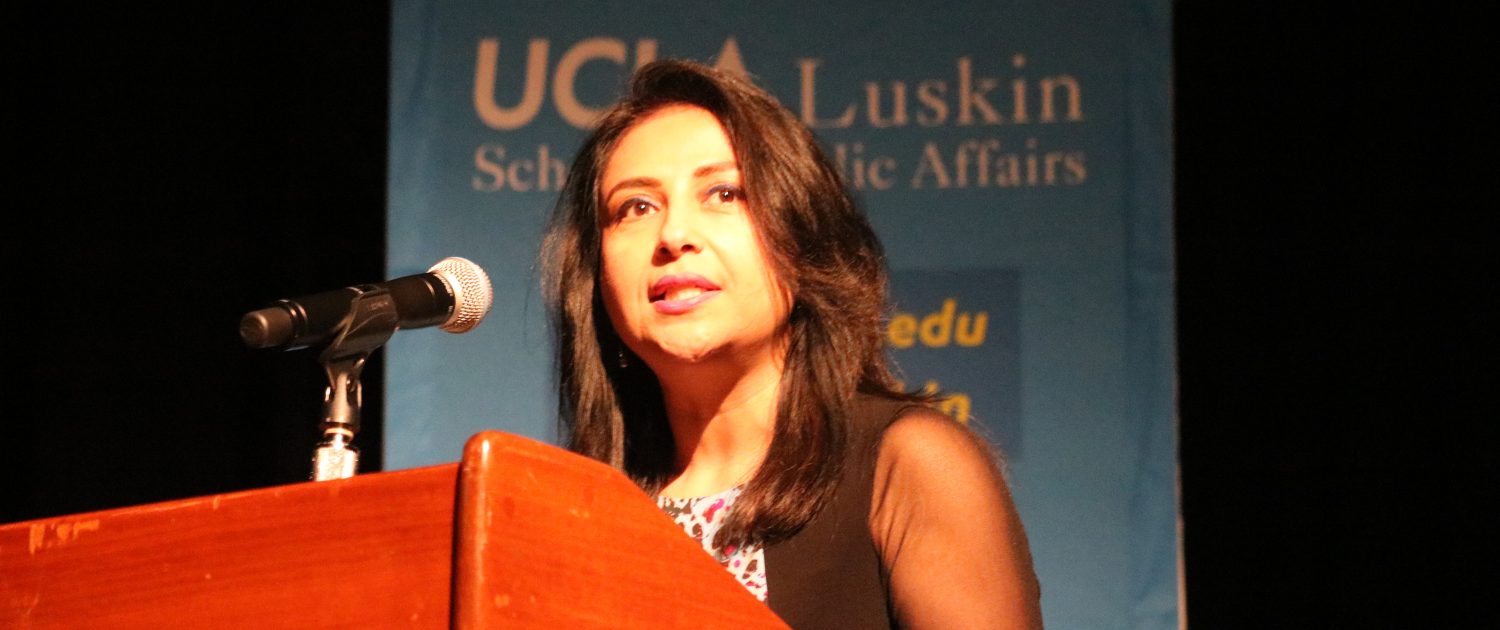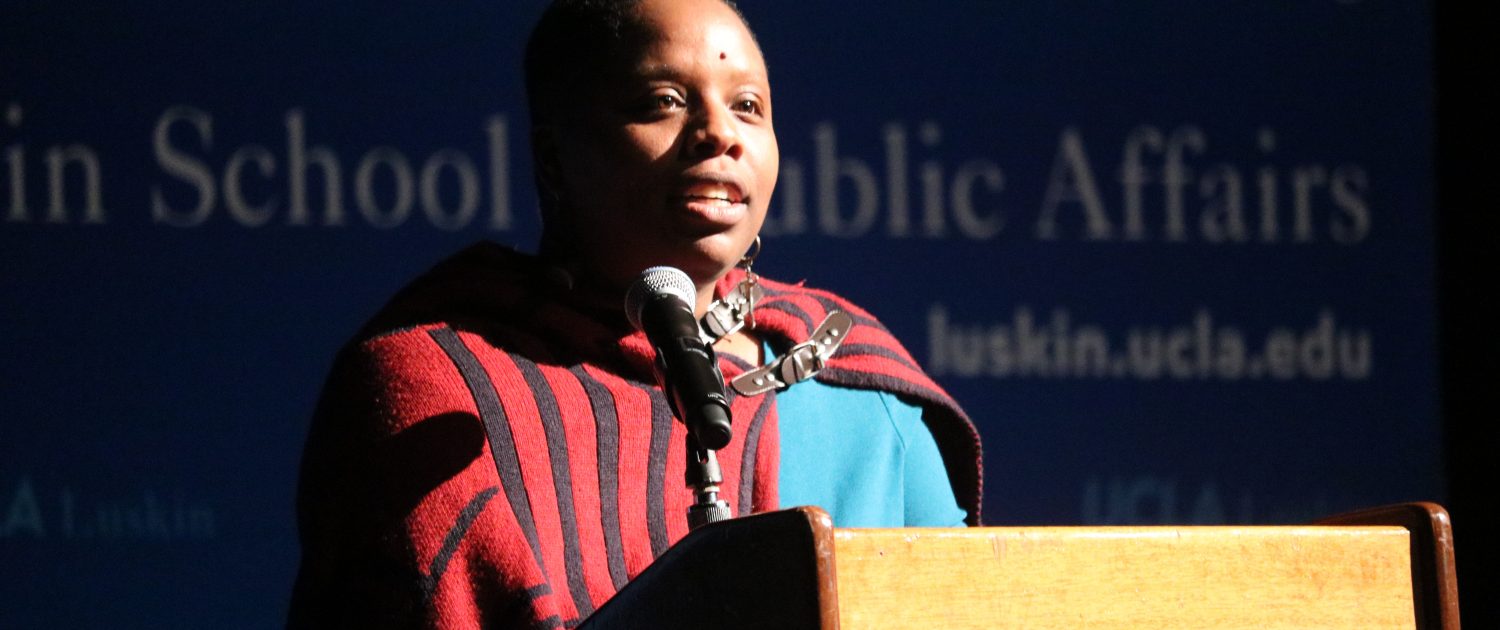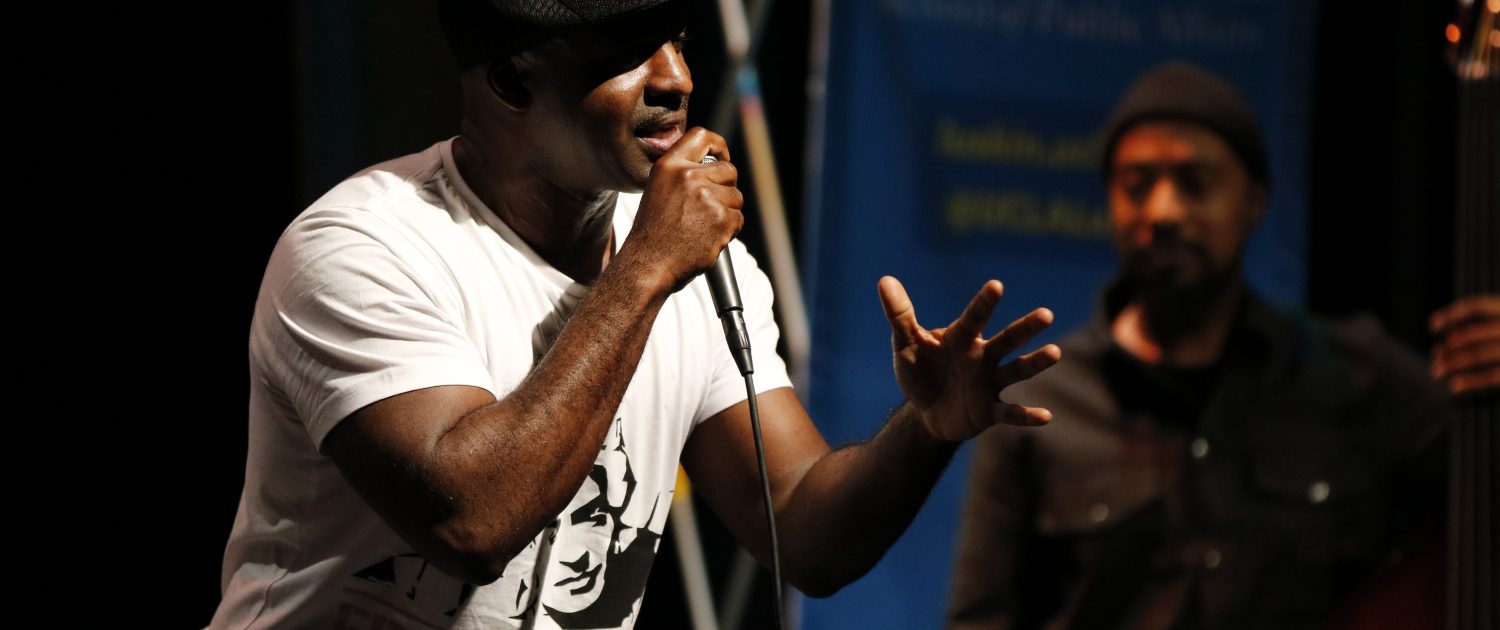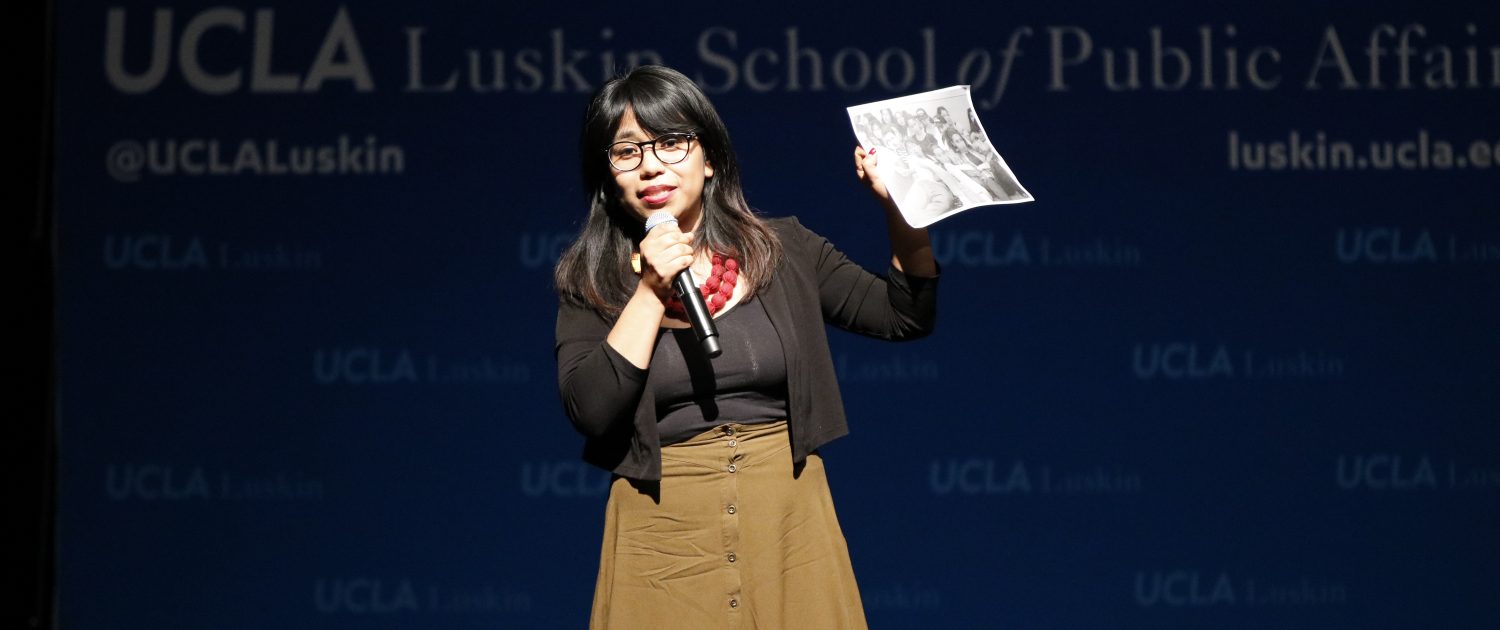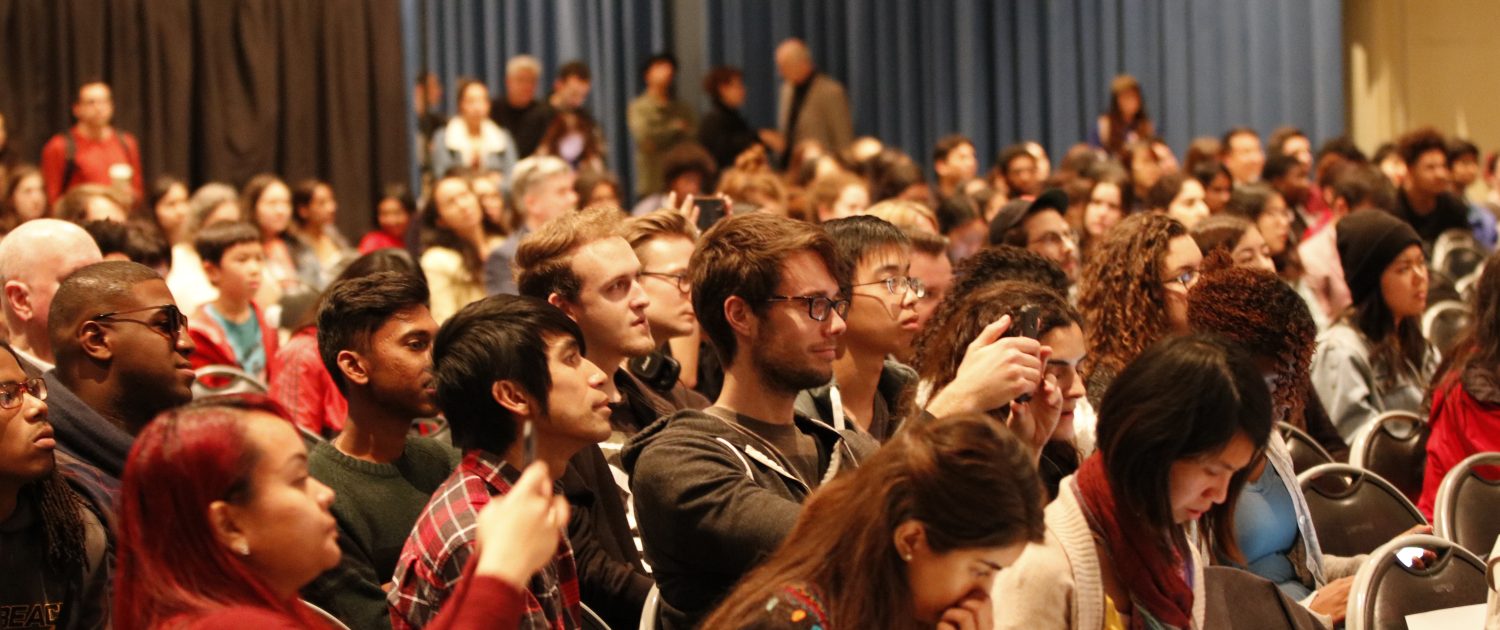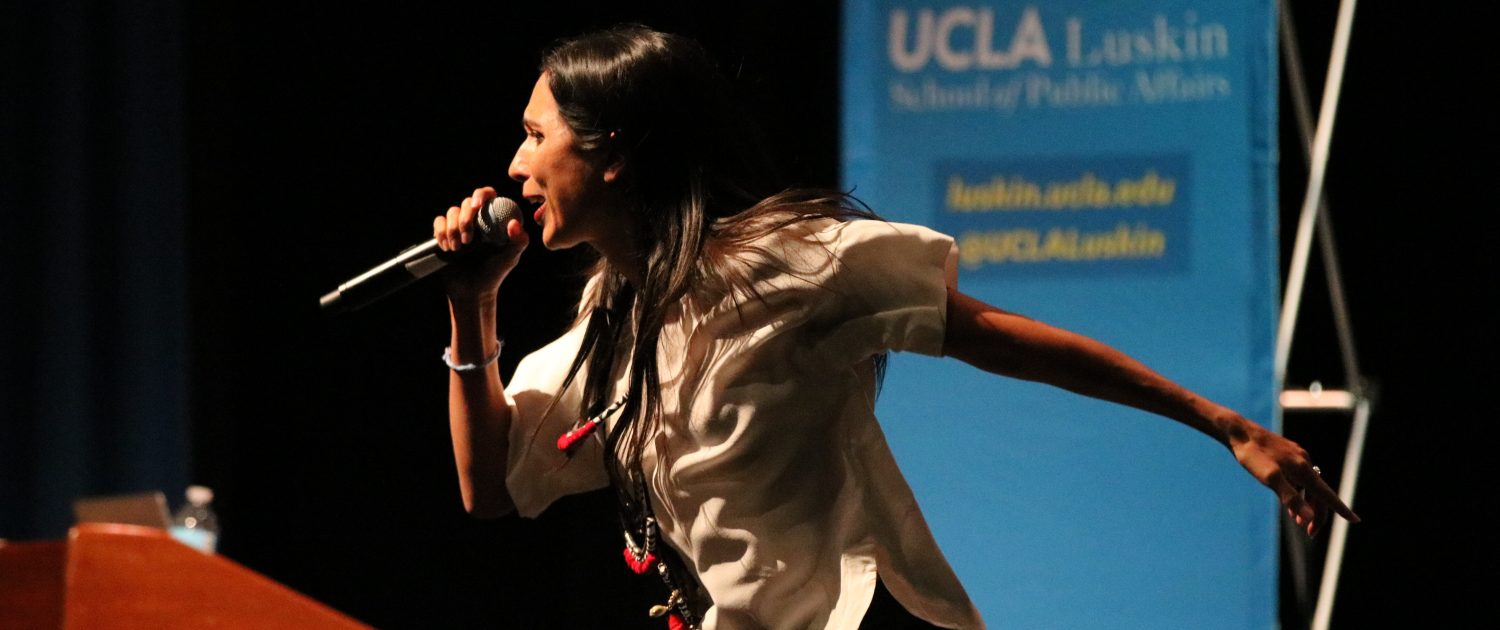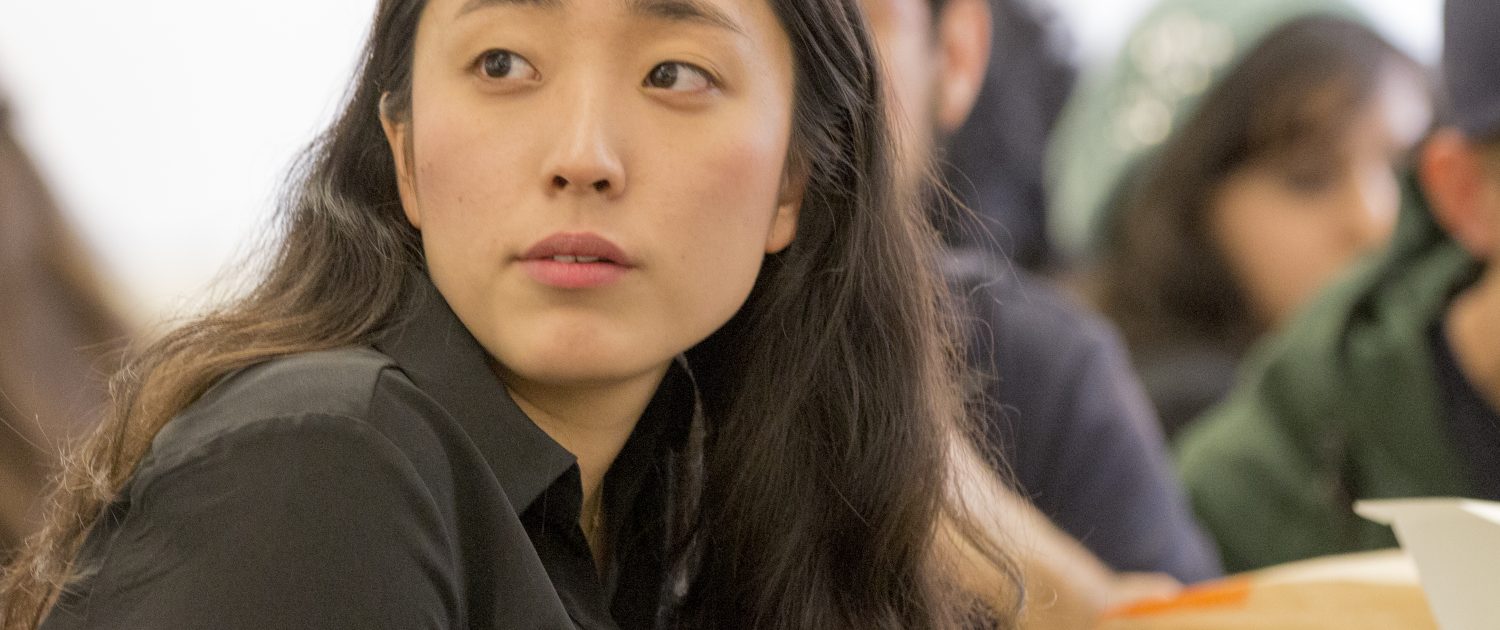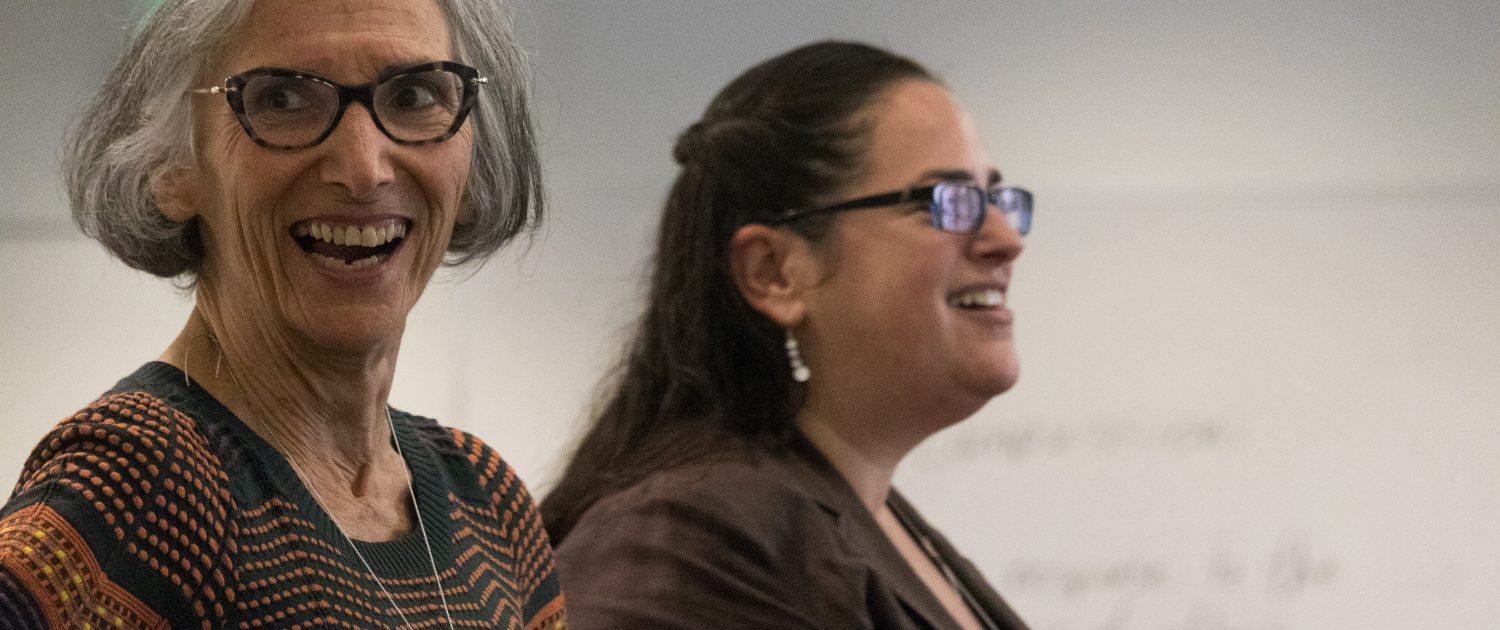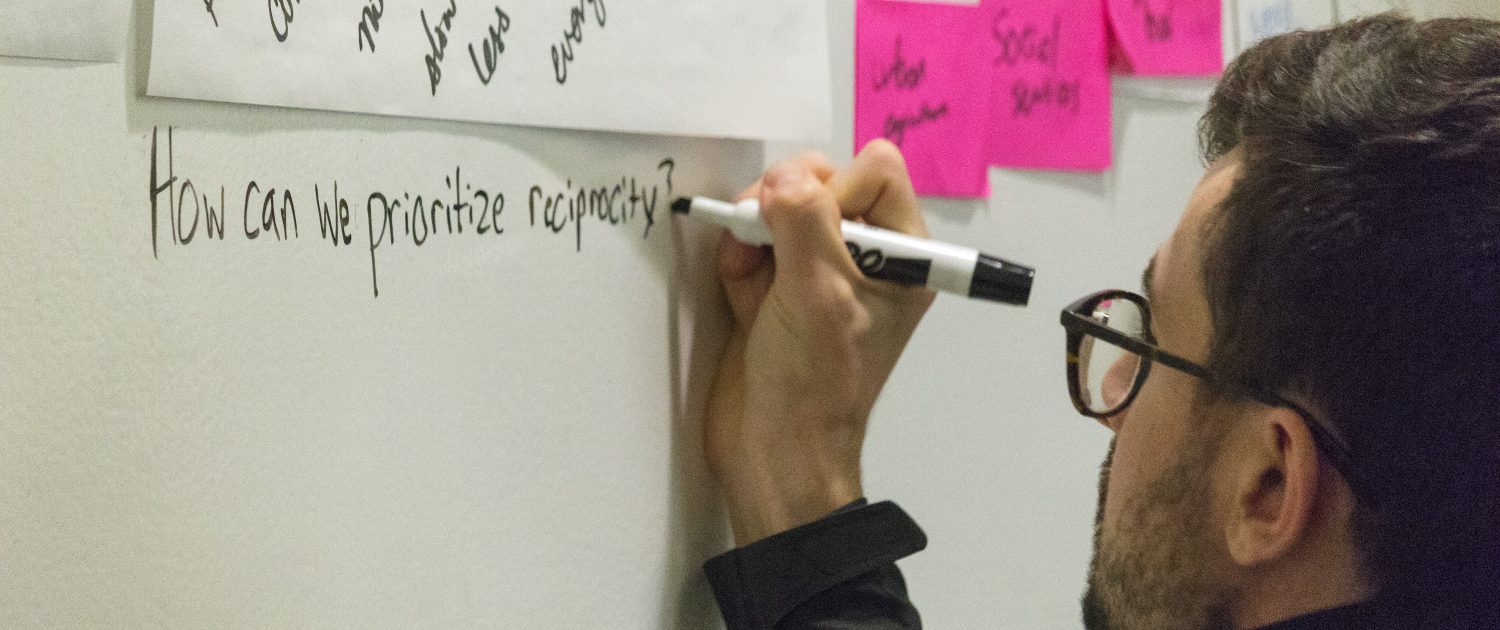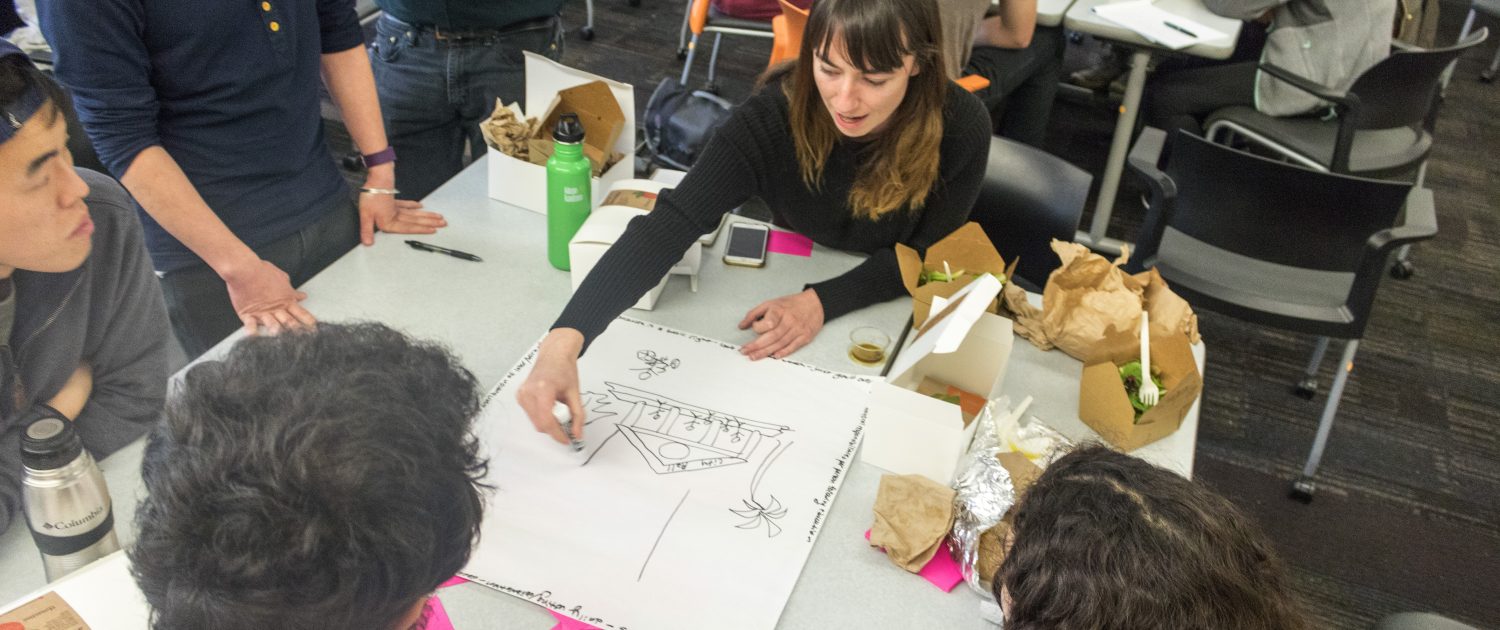A Speedy Solution to Networking A new format for the UCLA Luskin career event gives students direct access to alumni in their fields and fosters ideas about what they can do after graduation
By Zev Hurwitz
Taking a cue from speed dating, the UCLA Luskin School of Public Affairs held its first alumni career networking event in which graduates of the school’s three departments met with current students about professional opportunities.
The event, held April 20, 2017, at the UCLA Faculty Center, was the first career development opportunity for students in which each employer was represented by an alumnus or alumna of the Luskin School.
Edon Cohanim, a first-year MPP student, said he appreciated the directness with which alumni provided tips on best practices.
“Alumni are more willing to help us and are more down-to-earth with us,” he said. “I got some advice on my career and how to pursue it, and they helped me understand what good moves are.”
Barbara Andrade-Dubransky MSW `00, director of program support at First 5 LA, said she hoped to help students understand more about career options in social welfare.
“There’s interest for students in knowing what’s going on out in the field, and I’m happy to share not only what I know about my organization, but I have relationships with other organizations, so I’m happy to share information to help students find other opportunities as well,” Andrade-Dubransky said.
UCLA Luskin Career Services launched Alumni Career Connections in lieu of its annual career fair. In past years, Luskin had held career events that more closely resembled traditional job fairs. This year, students met one-on-one with alumni who graduated from the same department or who currently work in the student’s desired field. Each student had the opportunity to meet with up to three alumni over the course of an hour.
VC Powe, director of career services and leadership development at UCLA Luskin, said the change was in response to feedback from employers whose participation in the annual job fair had dwindled in recent years.
“For many employers, these small career fairs are passé,” she said. “I shared that with my student advisory committee, and one of the students said, ‘I want an alumni career fair.’ I lit up at the thought of that and said, ‘That’s a great idea!’”
Although many students attend career fairs in the hopes of finding a job, Powe noted that most UCLA Luskin students end up securing employment through networking.
“Networking, especially with alumni from your program, is extremely important,” she said. “This is more of a ‘We share a career-field, and am I prepared to do what you’re doing?’ kind of event.”
Alumni met with as many as eight students over the course of the evening. In all, 105 students and 42 alumni participated.
Jasneet Bains, a second-year, dual-degree graduate student in urban planning and public health, said she attended because she liked the structure of meeting with alumni from her programs and wanted to broaden her professional network.
“We were matched up with alumni who share our interests, and that’s very valuable,” Bains said. “They’re able to provide specific insight. Having gone through that process, they’re able to teach us about how to take knowledge from our program and apply that in the field.”
Adrian Cotta, a second-year MSW student, said he had no expectations about leaving the event with a job offer, but she hoped to learn from alumni who had the same educational experience as he did.
“I’m hoping to get some advice from people in the field to see how to begin a career — and make a new friend, if nothing else,” he said.
Wendy Yan MA UP `97, vice president of underwriting at affordable housing syndicator WNC and Associates, said that she attended not only to inform students about the field but also to recruit for summer internships and possibly full-time jobs.
“We’re always looking for good people,” Yan said. “Being an alum of the urban planning program, I know there are a lot of students who specialize in affordable housing, and so we’d love to have good people from Luskin work with us.”
Rima Zobayan MPP `01 currently works at Westat, focusing on an implementation project for national assessment on educational progress for the U.S. Department of Education.
“I was in the fourth class of public policy students, so there weren’t a lot of alumni who could participate in something like this for us,” Zobayan said. “It’s great for alums to have a chance to talk to current students, to share what we’re doing and to see what students’ interests might be.”
